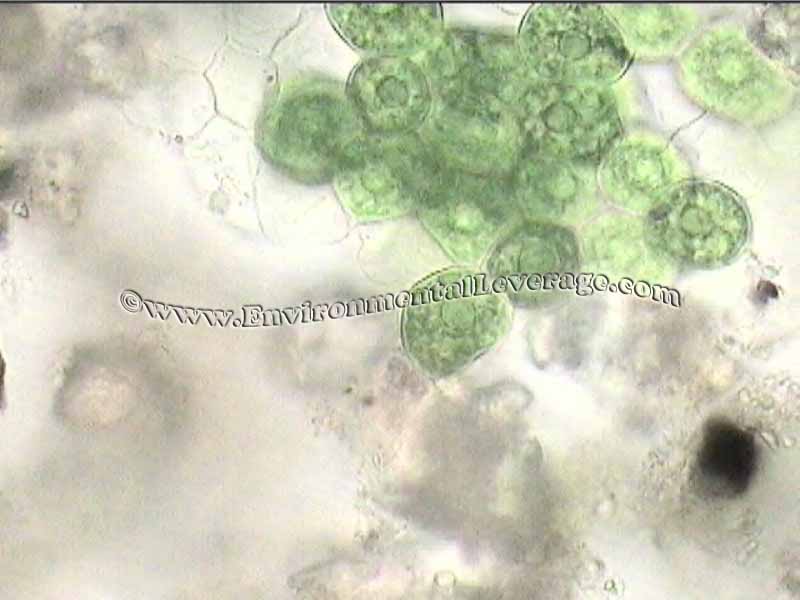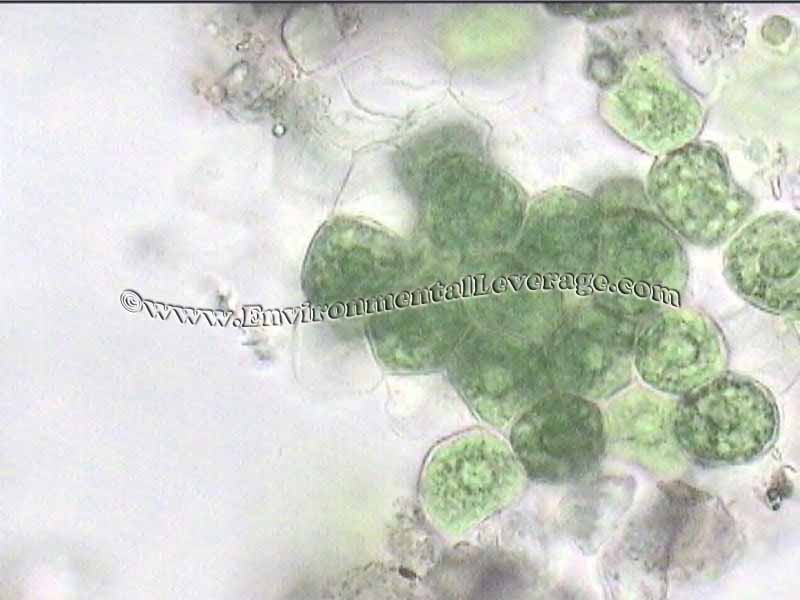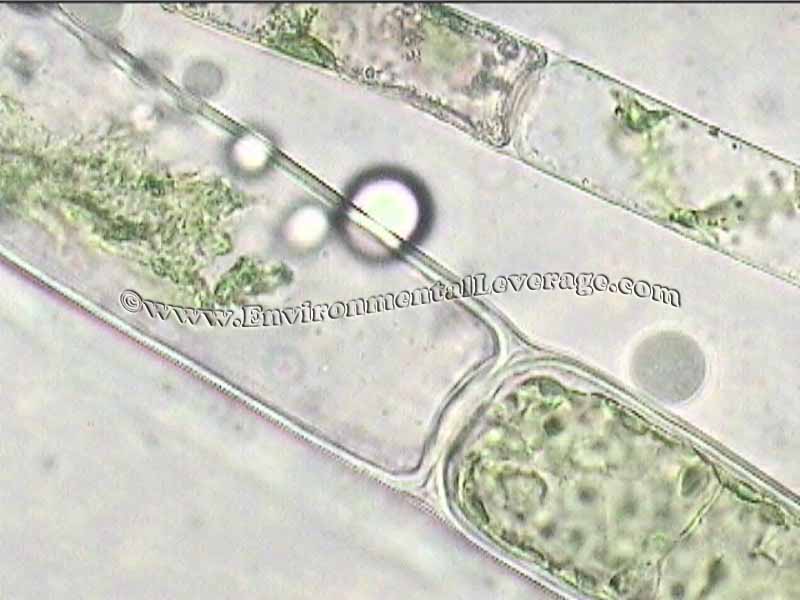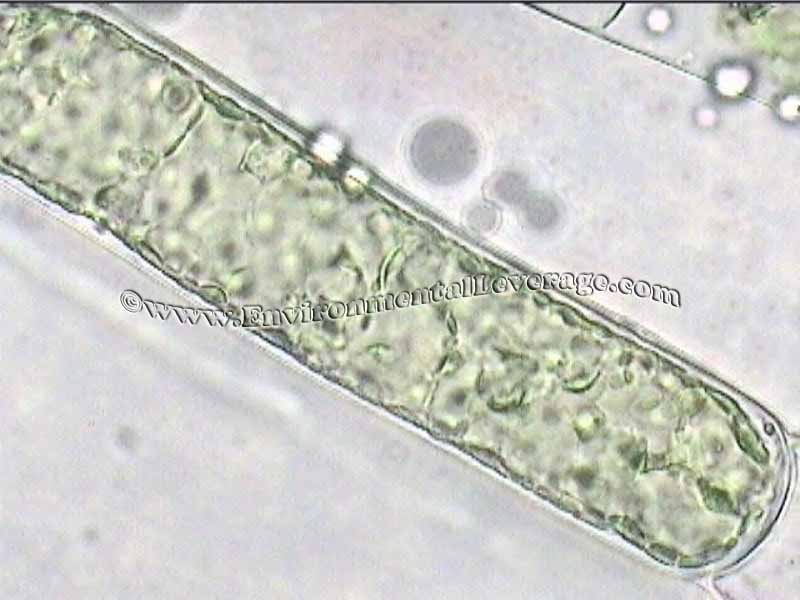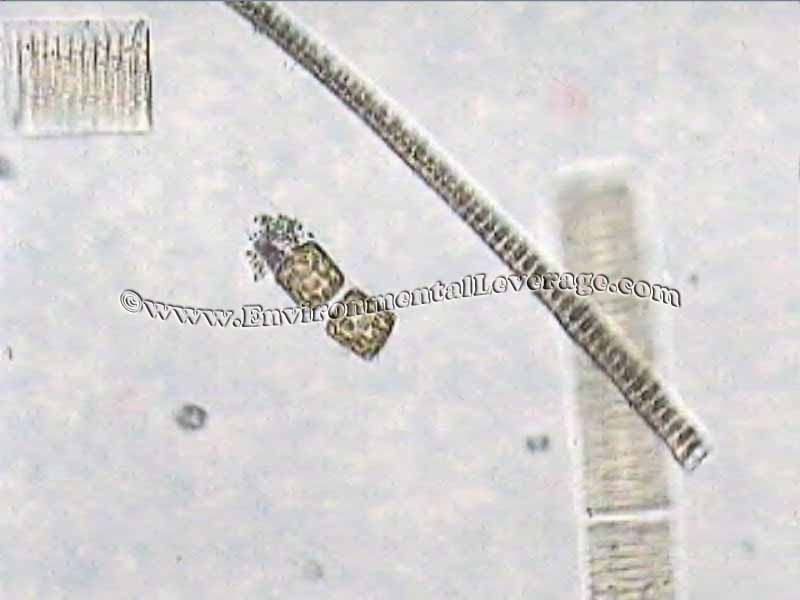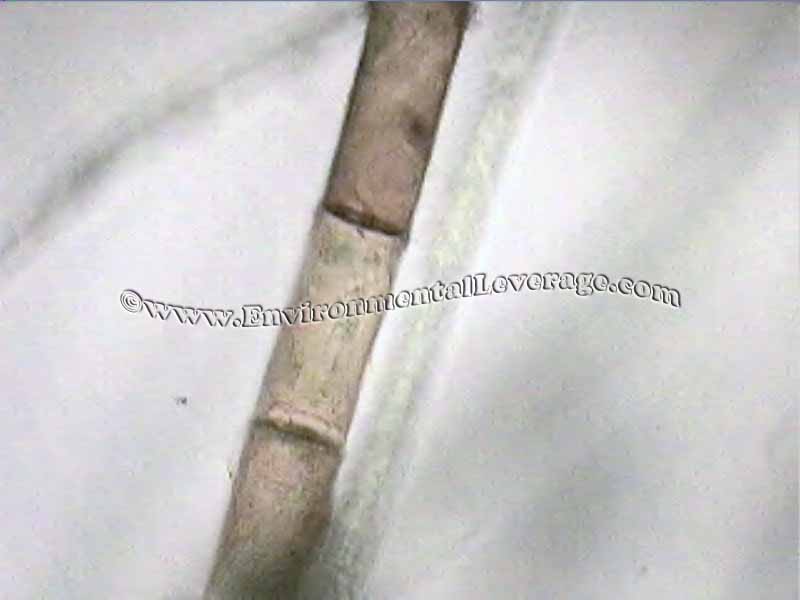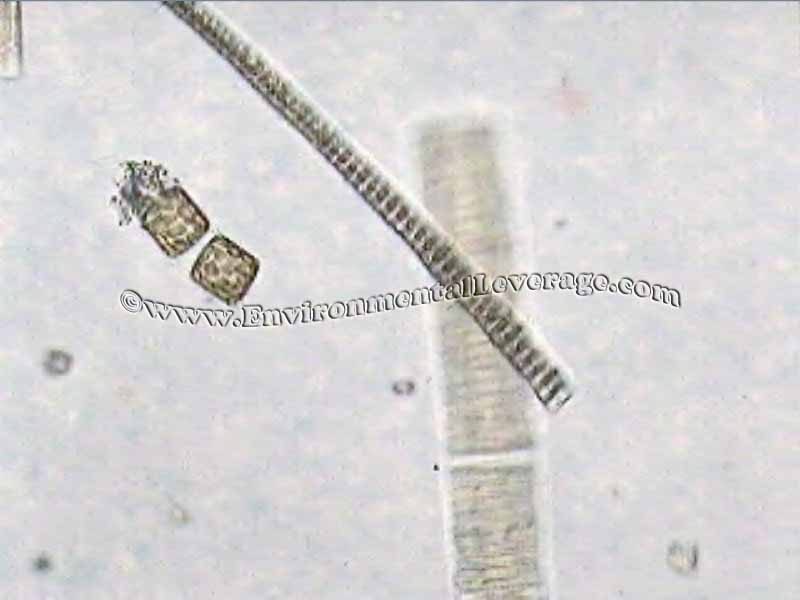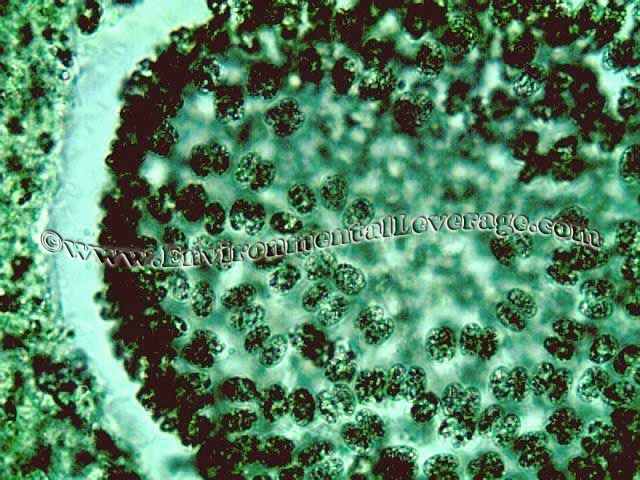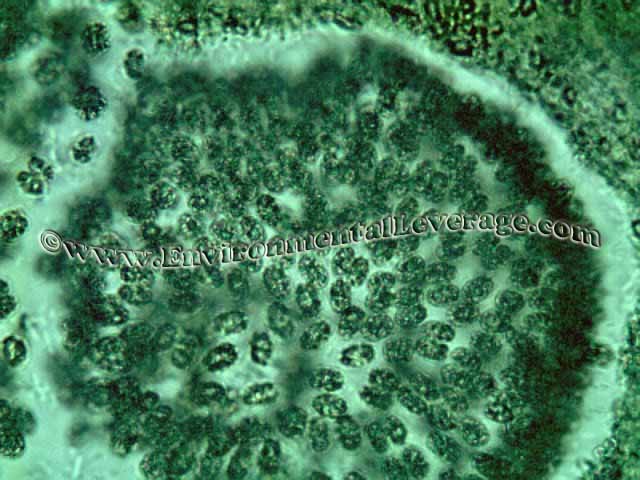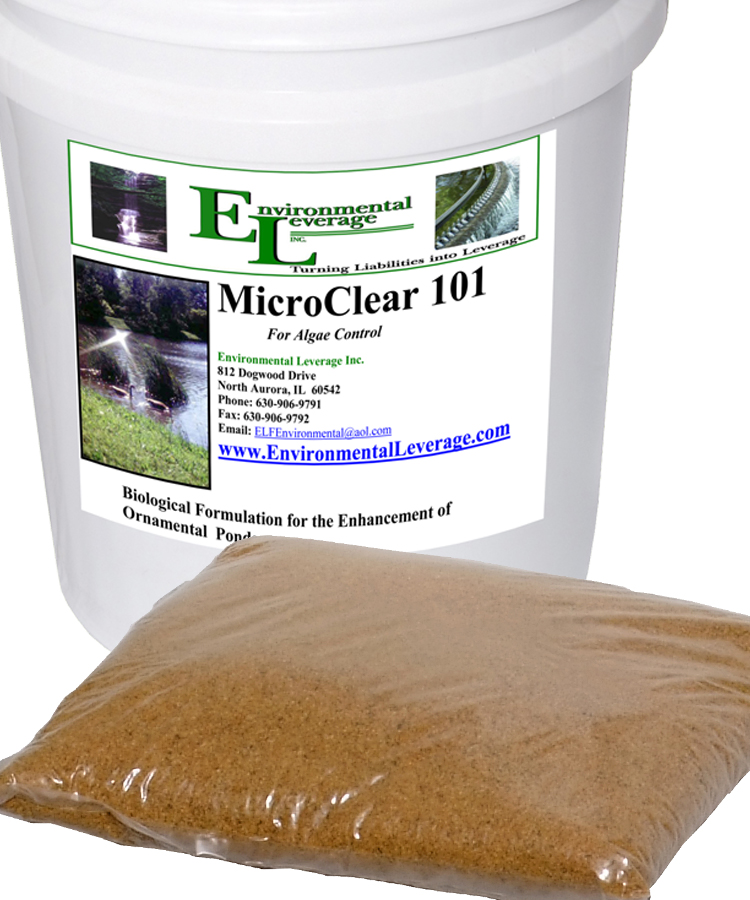Biological Products:
Bioaugmentation products for Wastewater applications in Papermills, Refineries, Chemical, Tanneries, Municipalities, Textiles, Steel, Agriculture, Animal feedlot, Gun Powder plant, Food and Beverage- Dairy Products, Orange Juice factory, Wineries, Cookie factory, Vegetable processing plant, Meat packing, Barbecue Restaurant, Aquaculture, Ornamental Ponds with algae , CAFO, Nursing homes, Military, Campgrounds, Universities, Regulatory agencies, River and Lake remediation
Lab Services:
Filamentous Identification Lab Service. One reason to identify filaments is to determine the filaments characteristics and then determine the type present. If the type is found out, a root cause can usually be associated with a particular filament. If the cause is known, then a correction can be made to alleviate problems. Chlorination is only a quick fix. Without process changes, filaments will grow back after chlorination. Wastewater Biomass Analyses and Cooling Tower Analyses also available
Training Materials:
Training is an integral part of any job. Not everyone is at the same level of training. Many people want beginning concepts and basics. Some need technical information or troubleshooting. Some want equipment, technology or process information. We have developed a full set of Basic training, Advanced training, Filamentous Identification the Easy Way as well as custom training CD's Manuals. We also provide hands-on training classes and soon will have an Online "E-University".
Audits and Consulting:
At Environmental Leverage® Inc., we have a team of experienced individuals who come into your plant with a fresh pair of eyes. The system is checked from influent to effluent. System optimization, equipment efficiency and operational excellence are key components explored. Key Benefits Equipment efficiency Total Cost of Operation reductions Reliability and safety An onsite audit is conducted to examine system parameters, process controls, and current monitor and control procedures. A physical walk-through is conducted, process flow diagrams are examined, previous design criteria are examined and current standard operating procedures are evaluated along with data logs.
|
Troubleshooting - Algae Species - Algae Control and SolutionsLatest News!
What's New!
We have just added "Virtual Audits" to our capabilities. Check out our new Services. We are in the process of developing new courses for our ""Online E-University" in order to meet the needs of our global customers that cannot travel to our public classes.Visit our new website www.WastewaterElearning.com/Elearning
Environment: Algae can be found in a variety of environments, soil, fresh or
Algae Control and Solutions: There are various different controls depending upon the type of system, the cause and the location of the algae.
Problems
associated with Algae:
These photomicrographs were taken from many wastewater systems, pond and lake samples. Most of the objectives used were 100x and 400x. Some photos were taken at 1000x.
Come take a closer look at the amazing world under the microscope! We have tried to label some of the common species usually found and easily recognized. Names keep getting more complicated and some seem to constantly change so keep that in mind. If you notice one wrong, please feel free to let us know!
Actinastrum
Aphanizomenon flos-aquae
Anabena is a bluegreen alga that can fix atmospheric nitrogen. Nitrogen fixation takes place inside the heterocyst (the larger, very round cell in the photos).
Achnantes taeniata -Common name: Brown algae Section: Protists Kingdom: Protista Phylum: Phaeophyta
Botryococcus
Bulbochaete
Chlamydomonadales
Chaetoceros species have spines with serrated edges which can lodge in fish gill tissues. This can cause irritation, over production of mucous, and eventual death
Chlorophyta - Cladophorophyceae Cladophorales Cladophora
Odeogonium with epiphytes Brown algae may often be found growing on other plants, as epiphytes
Closterium
Chroococcus
Cosmarium
Diatoms
Eudorina ?
Haematococcus is a green alga whose color is often orange to red. These are resting stages. This species is often found in areas where the water dries up, such as bird baths.
Hydrodictyon
Melosira
Merismopedia glauca
Microcystis
Microspora
Oedogonium
Oscillatoria blue green algae that is motile by gliding.
Pediastrum duplex
Possibly Pediastrum duplex Pediastrum boryanum ? Pediastrum sp. are planktonic green algae with flat, plate like cluster of cells with one or two points. They come in many different variations. The colonies usually contain 8 to 32 cells, with examples of 4, 64 or occasionally 128.
Phacus- This is a flagellate
Phormidium
Pseudanabeana
Rhizoclonium ?
Scenedesmus
Spirogyra
Spirulina
Synechococcus ?
Ulothrix
Volvox
Woronichinia naegeliana
Zygnema
Do you know what these are? We have not had time to find out what these species are named. Can you help us?
Biological Products for Nutrient Control and to Provide Algae Solutions: Click Link below
Click here for Bioaugmentation in Rivers, Canals, Ponds, Lagoons and Lakes
Call Environmental Leverage®
today to learn more
about our Programs and Solutions! Call 630-906-9791
Click the links below to access pdf documents of proucts and information: MicroClear® 101 for Nutrient Control and Solutions Microscopic analyses of your system More Algae Control, Solutions & Troubleshooting: Click Links Below Algae in various parts of a treatment plant
Algae in Ornamental or small ponds Algae Removal- Bioaugmentation Algae in Various parts of the Plant Mystery bug of the Month- Algae Salton Sea Free swimming ciliates
|

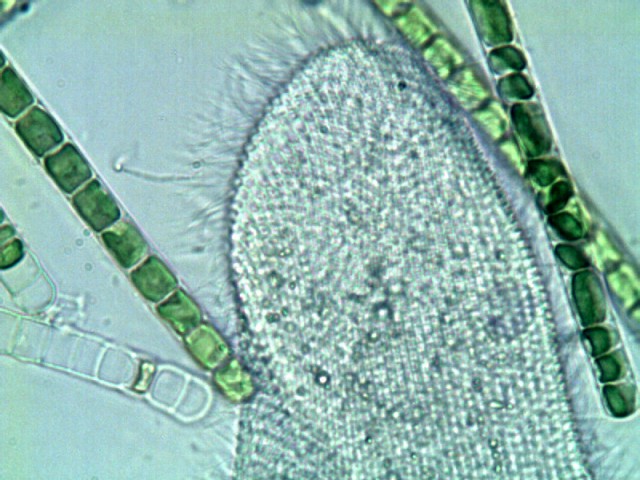 More
than 10,000 living diatom species are known, there are over 8,000 species of
Algae, there are 1500 species of Blue Green algae or Cyanobacteria,
there are 6000 species of red algae or Rhodophyta . . . . the list goes on
and on- ok, so identification is not as important as why is it growing, how
it impacts my plant and how to get rid of it!!!
More
than 10,000 living diatom species are known, there are over 8,000 species of
Algae, there are 1500 species of Blue Green algae or Cyanobacteria,
there are 6000 species of red algae or Rhodophyta . . . . the list goes on
and on- ok, so identification is not as important as why is it growing, how
it impacts my plant and how to get rid of it!!!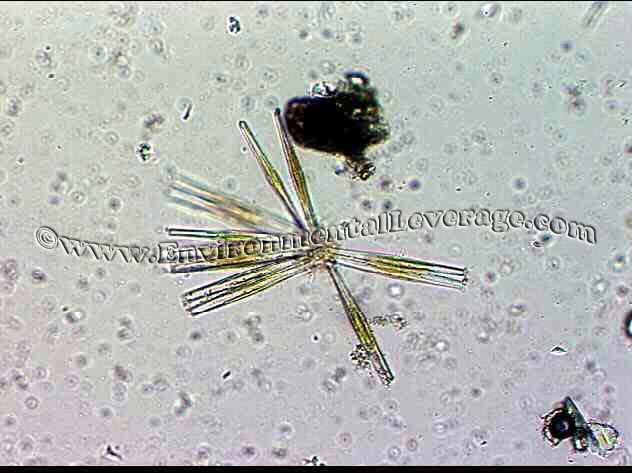
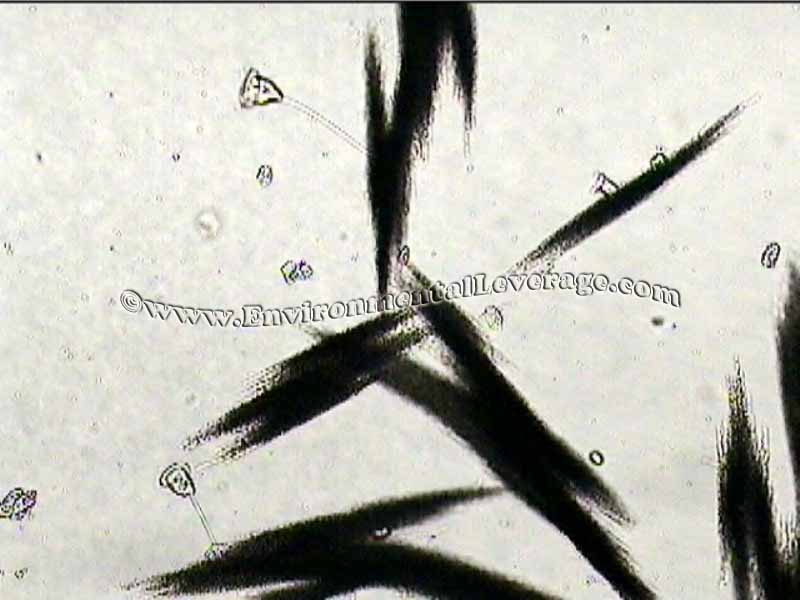
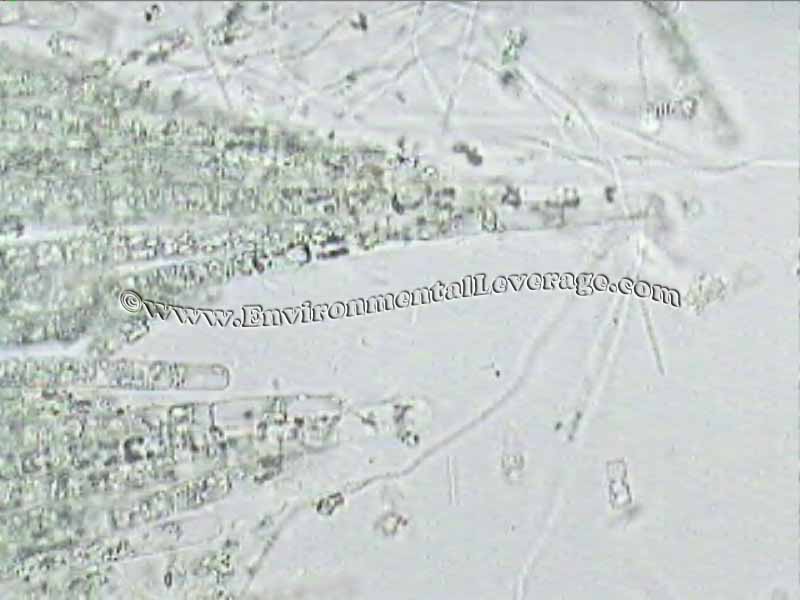
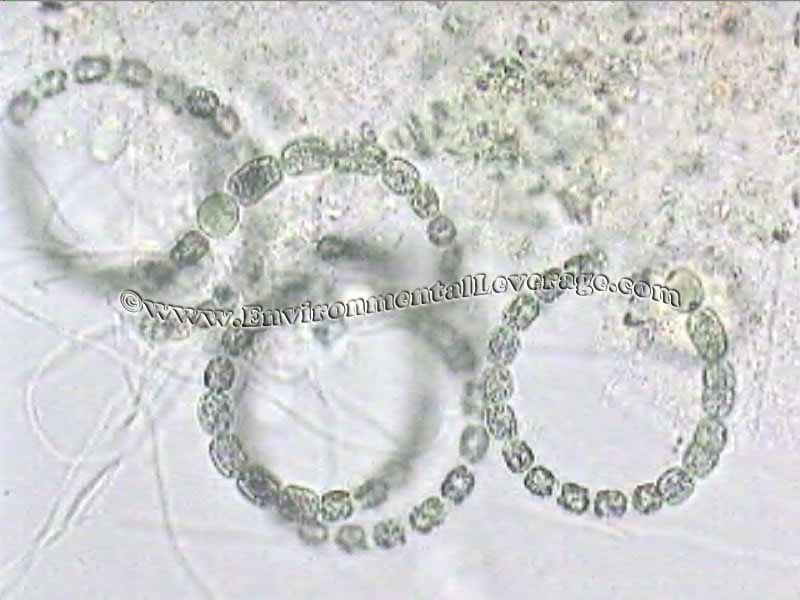


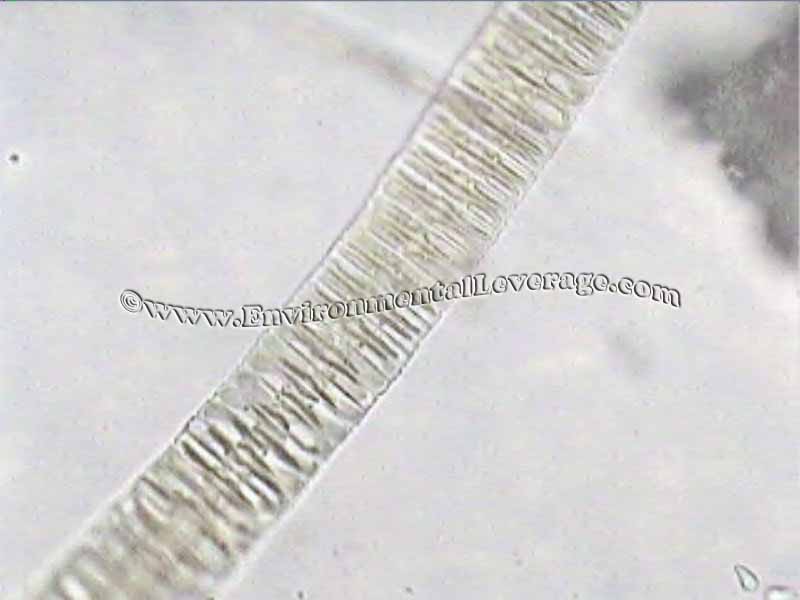
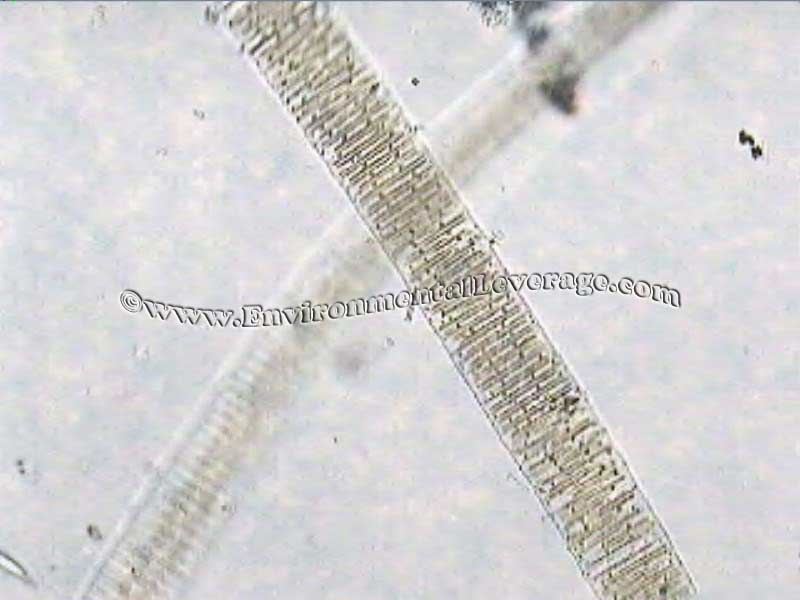

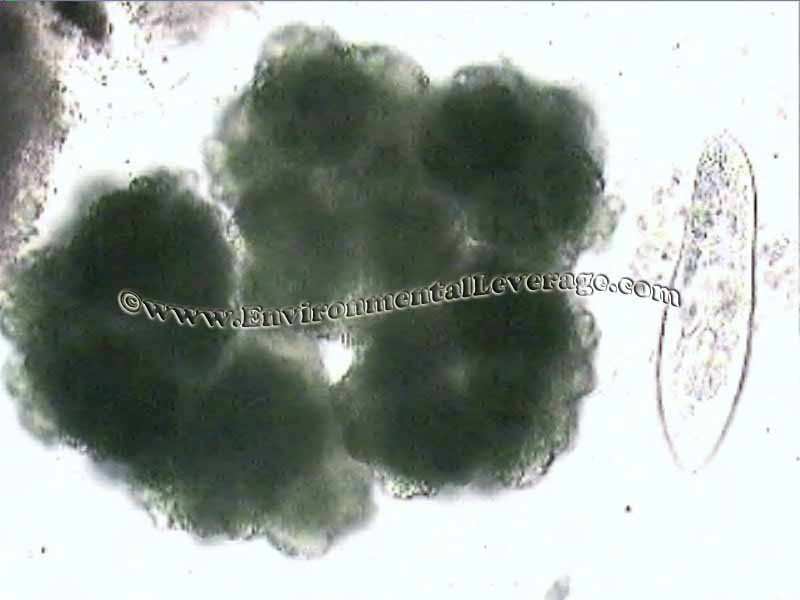
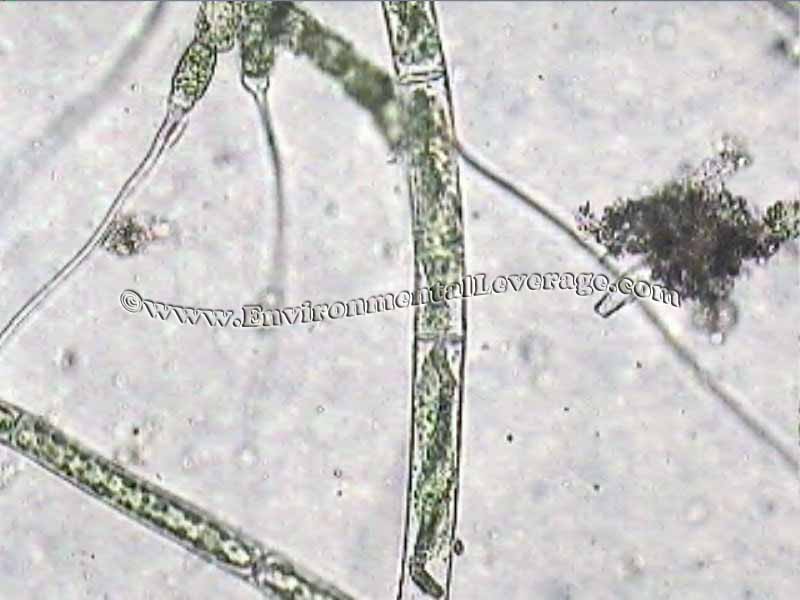

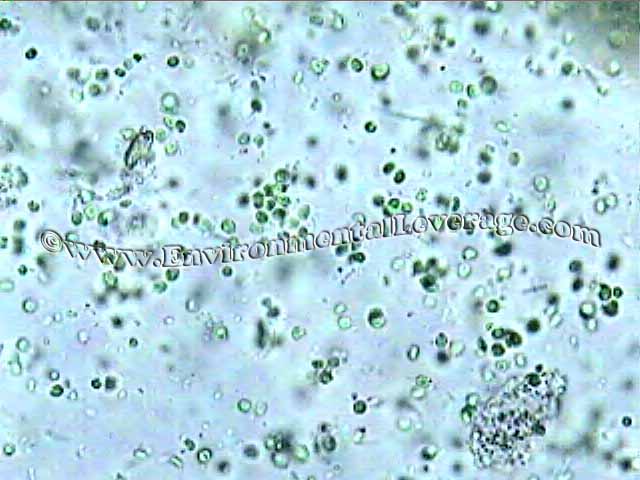
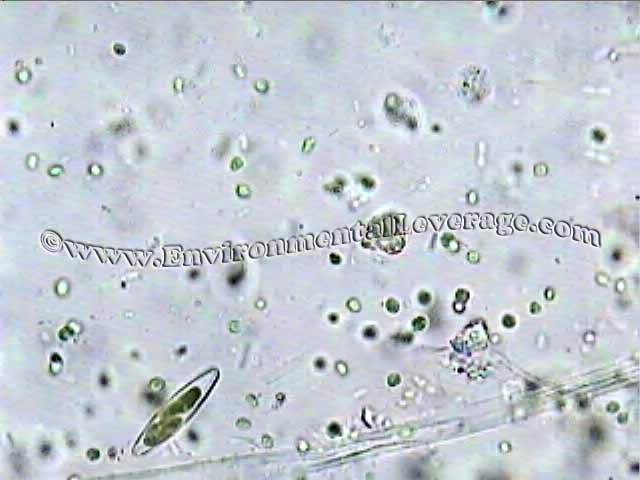
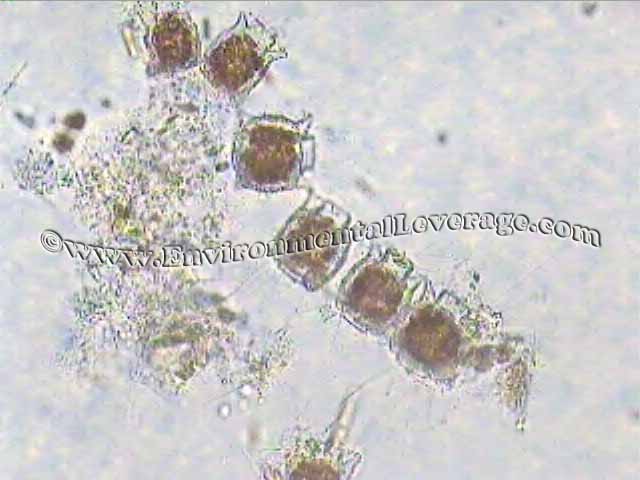
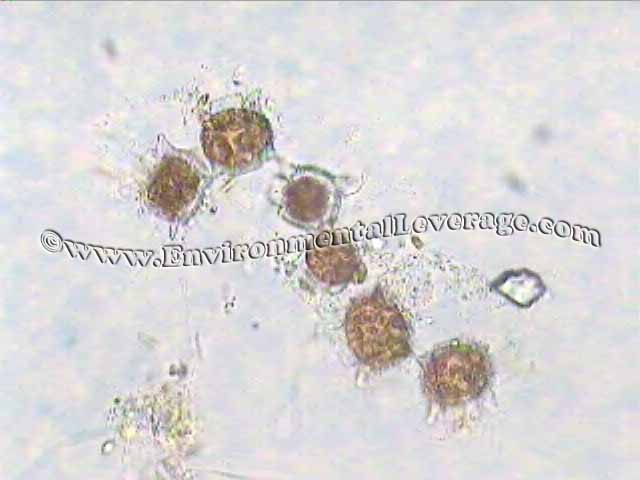
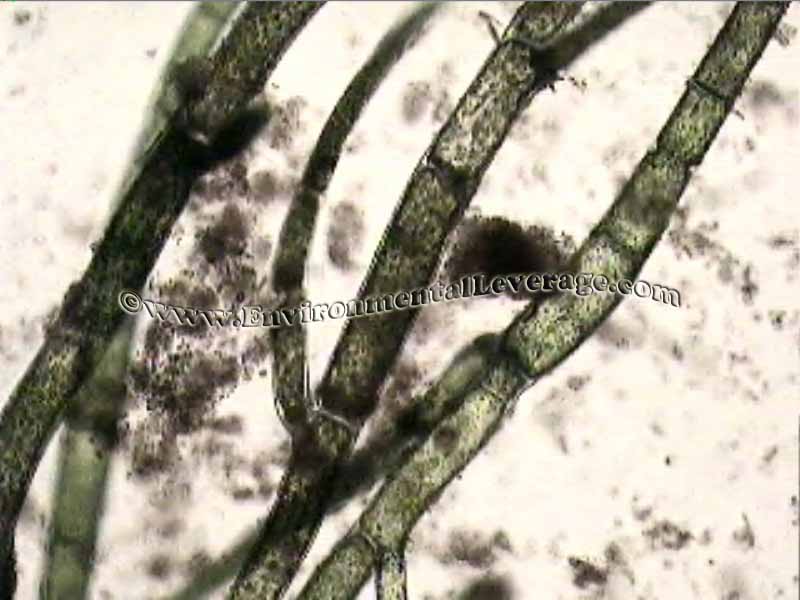
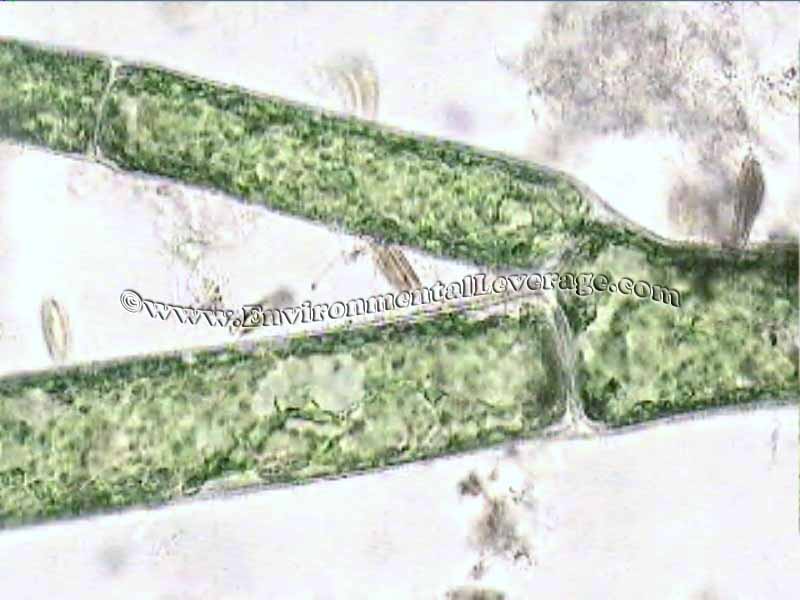
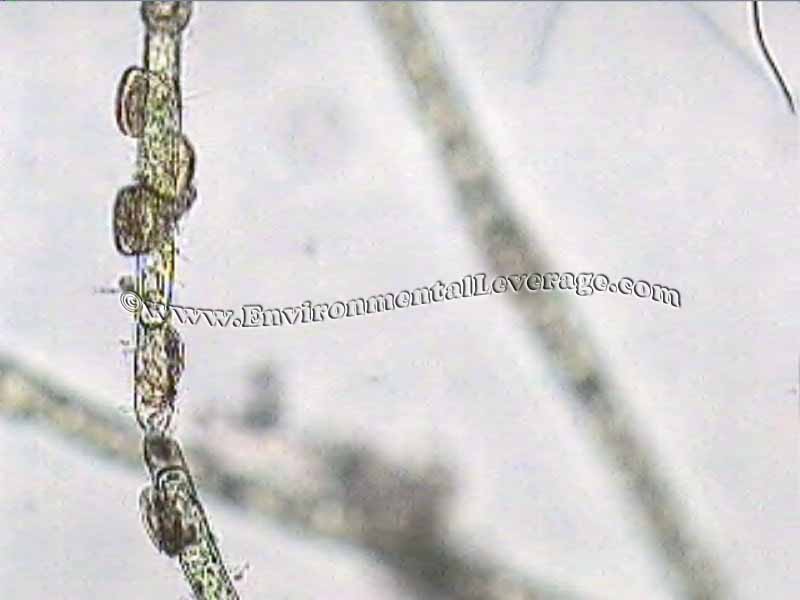 Chlorophyta - Chlorophyceae Oedogoniales Oedogonium sp. (?)
Chlorophyta - Chlorophyceae Oedogoniales Oedogonium sp. (?) 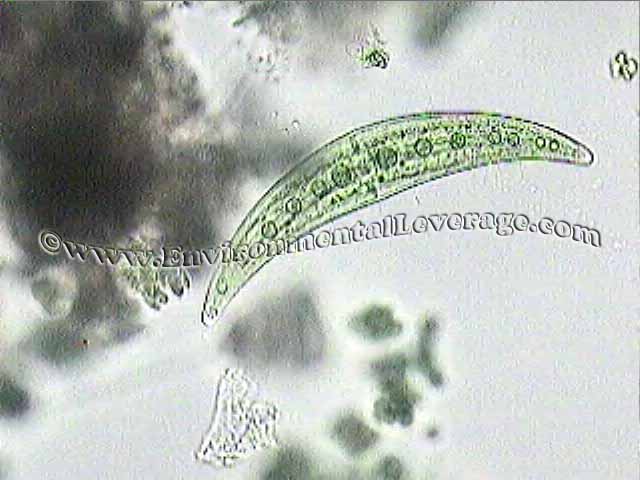
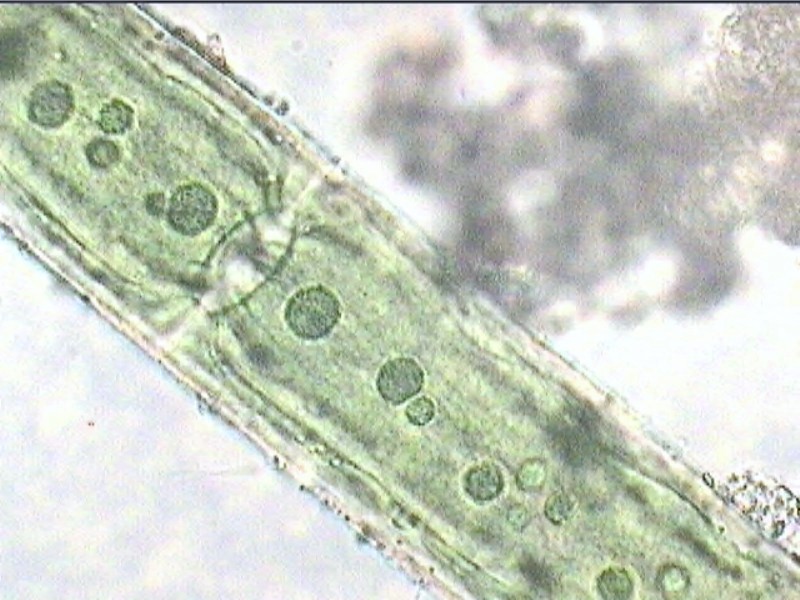
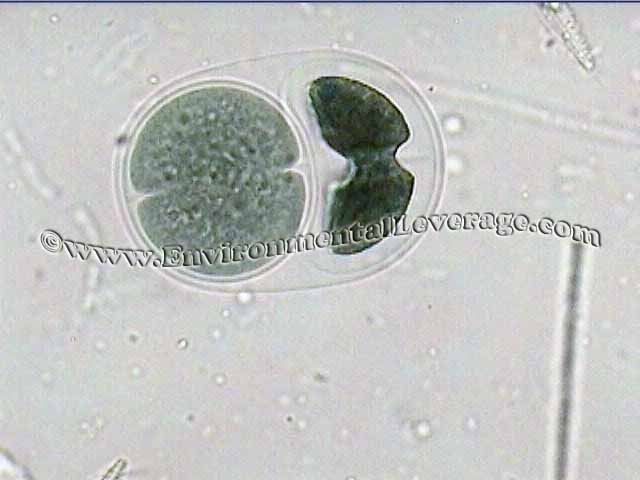
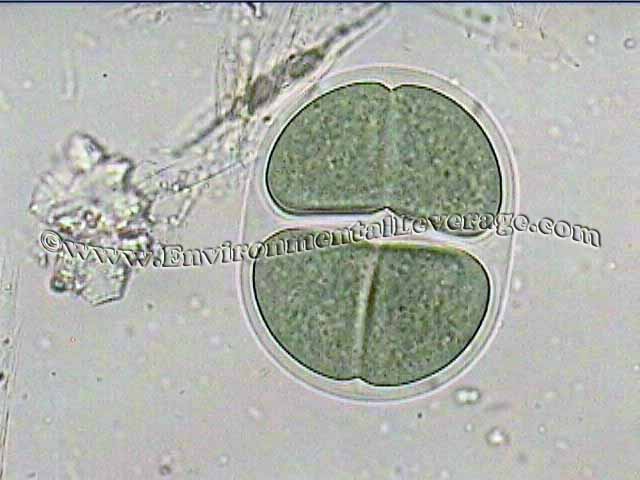
.jpg)
.jpg)
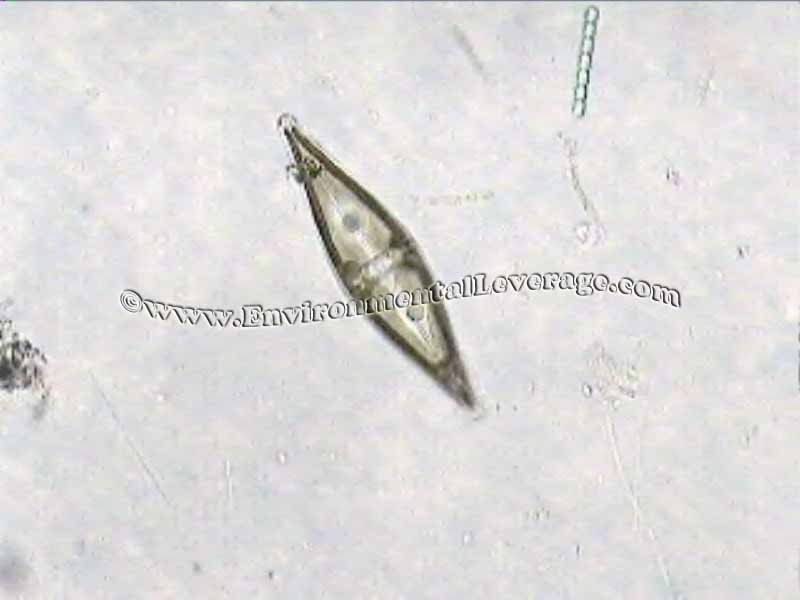
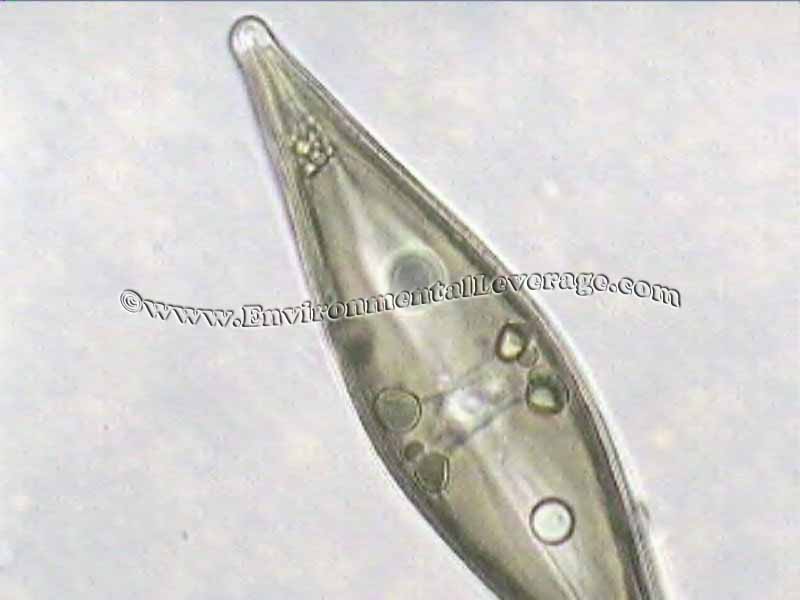
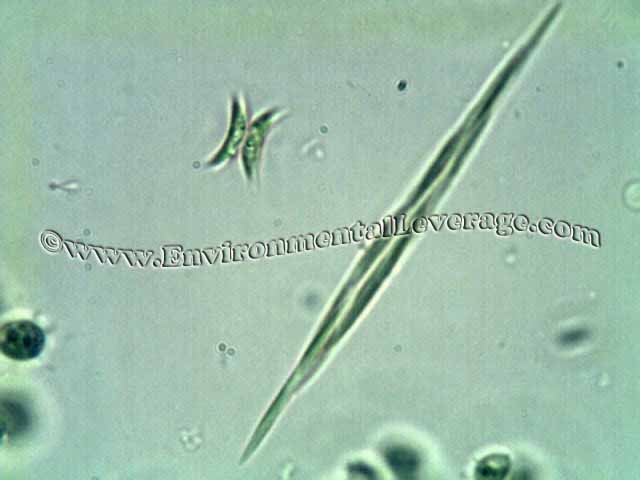
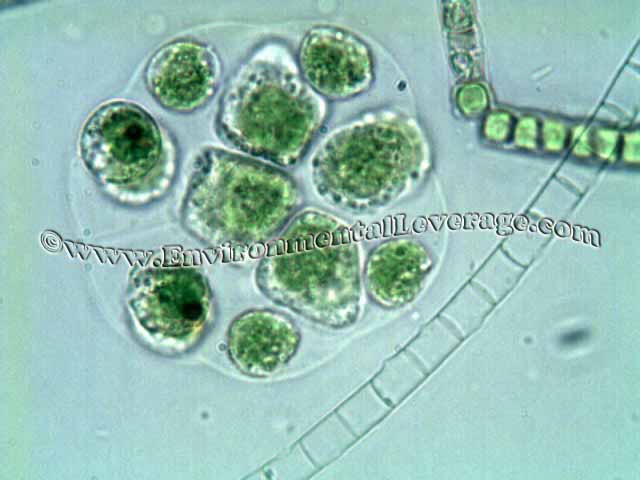
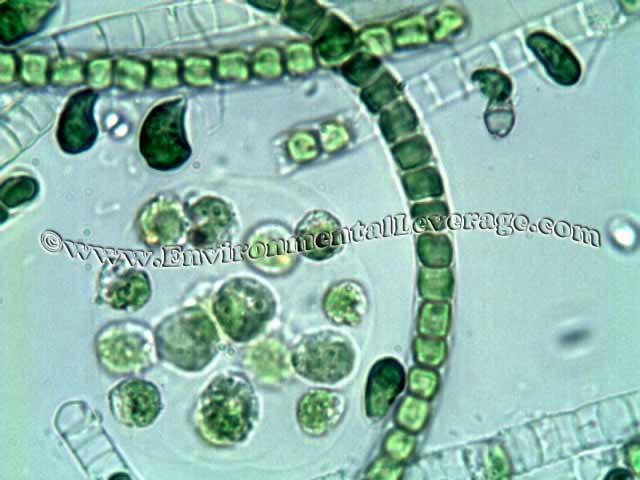
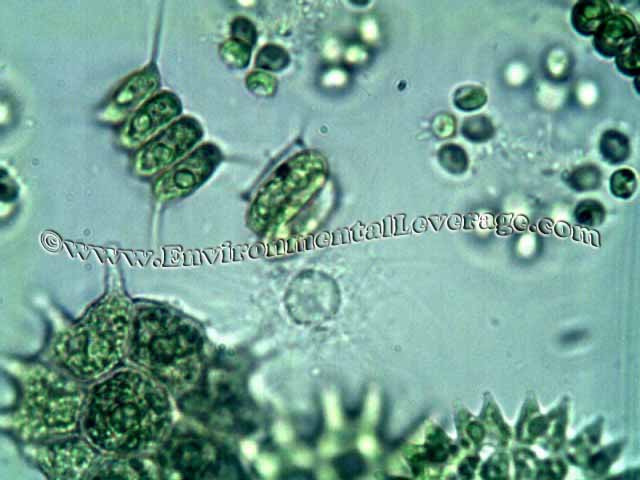
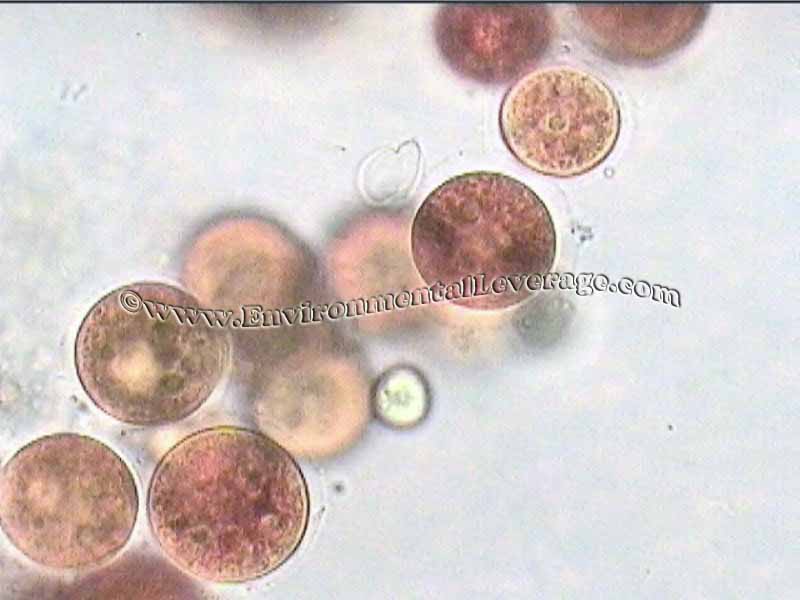
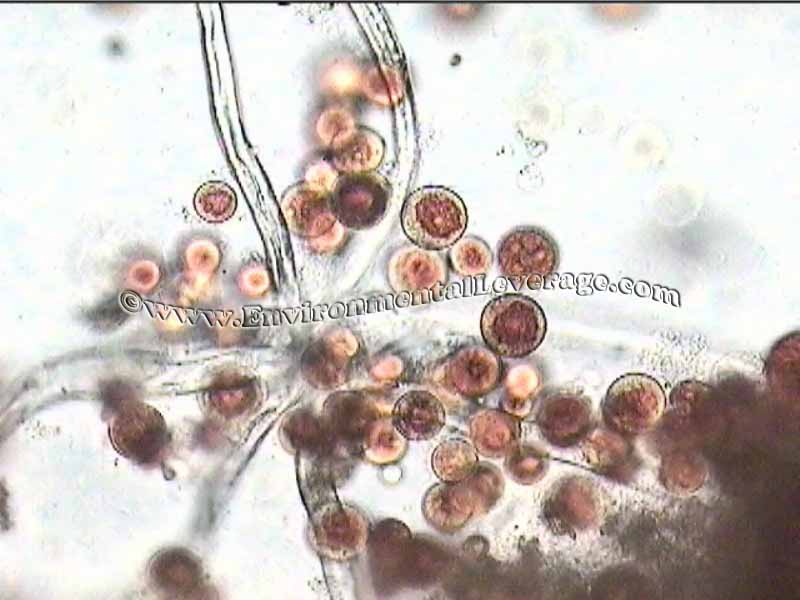
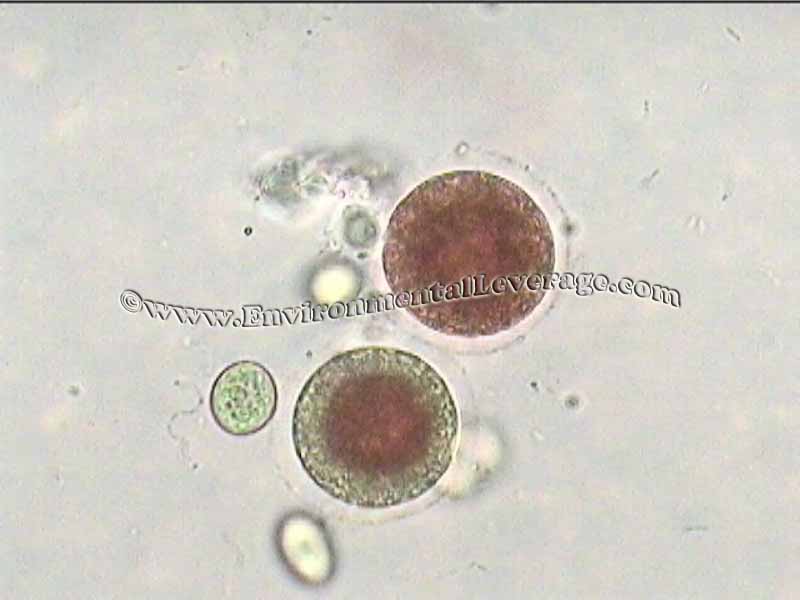
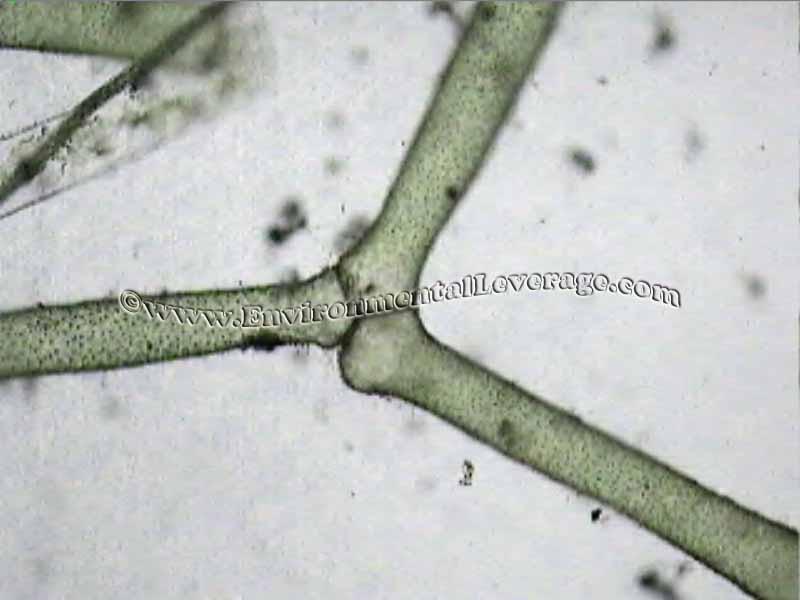
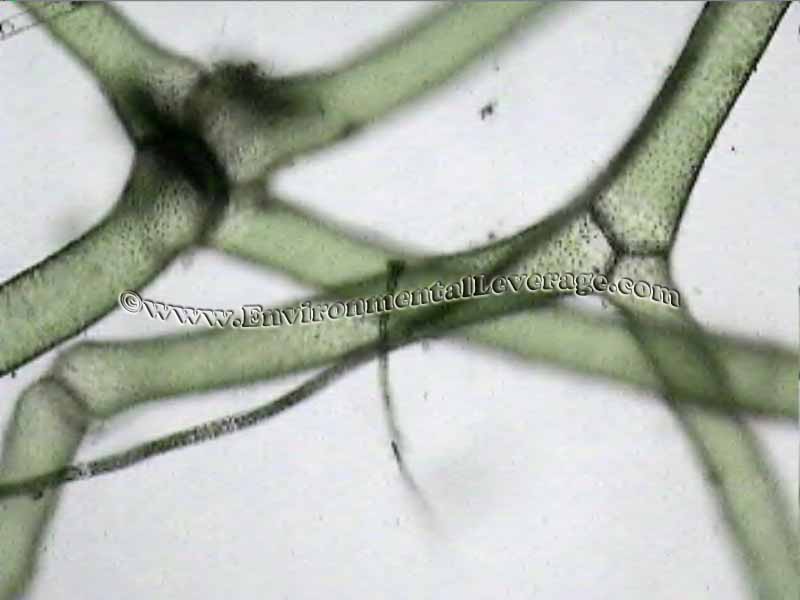
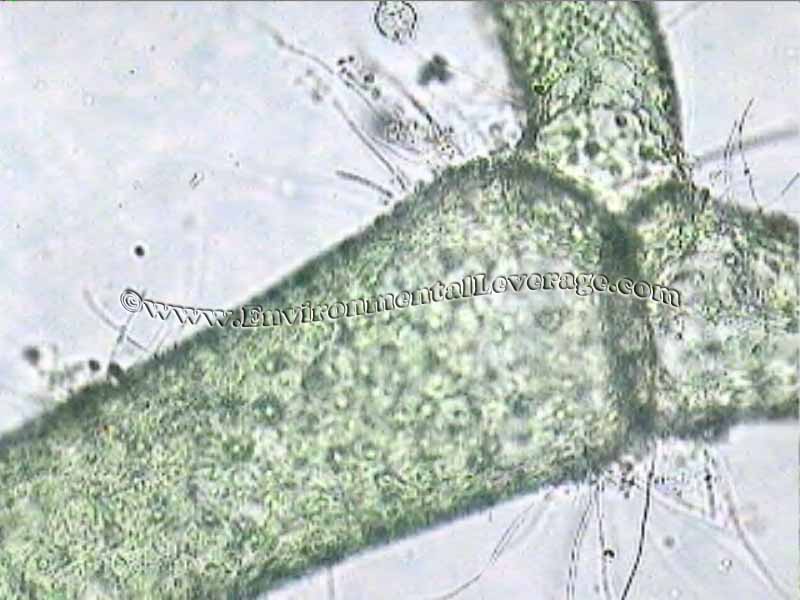
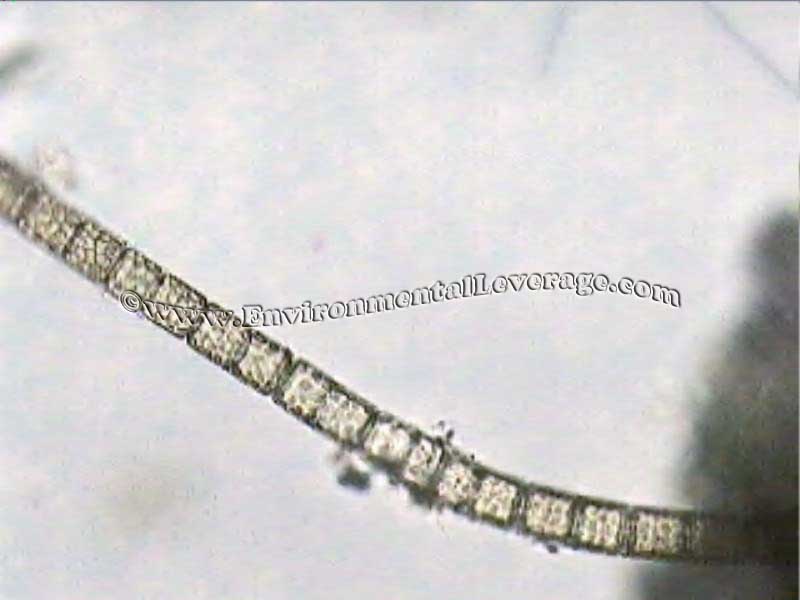
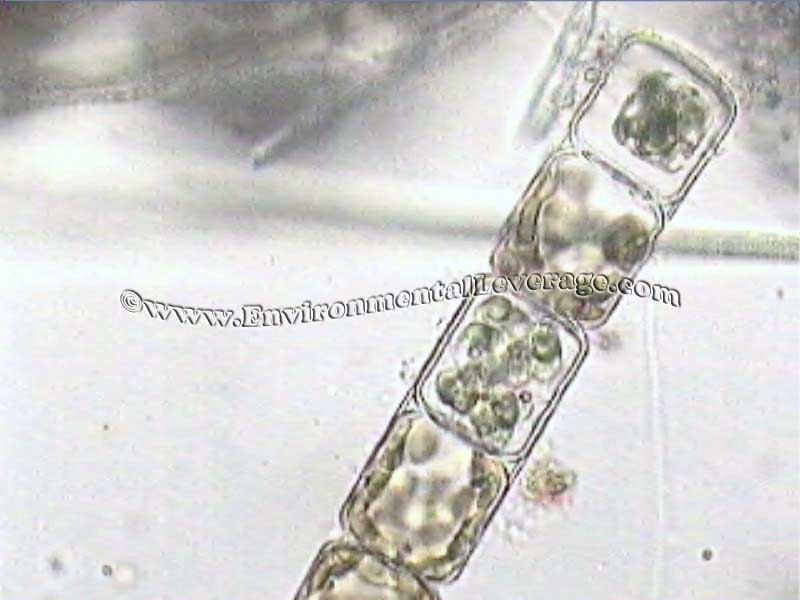
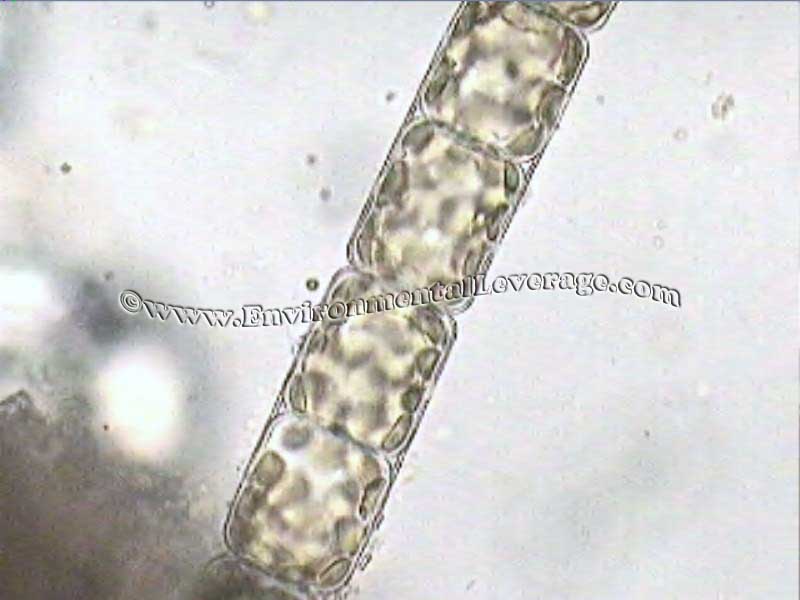
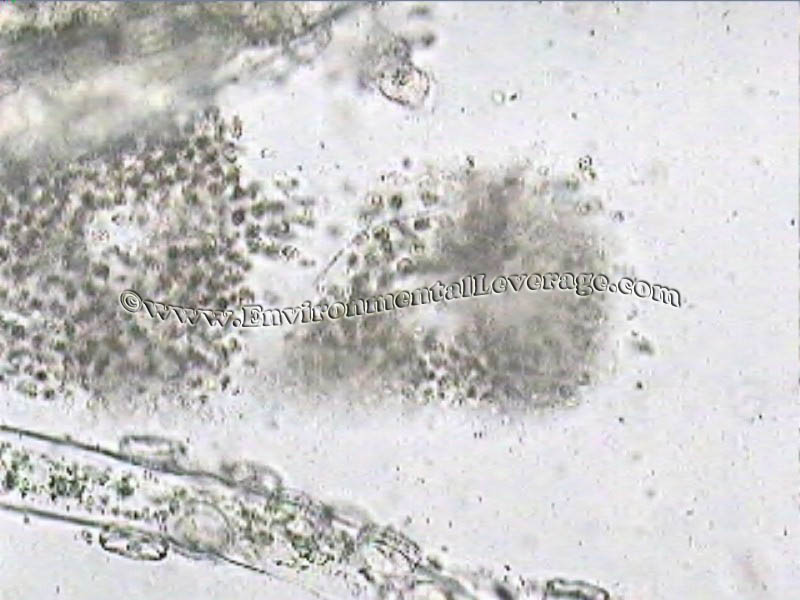
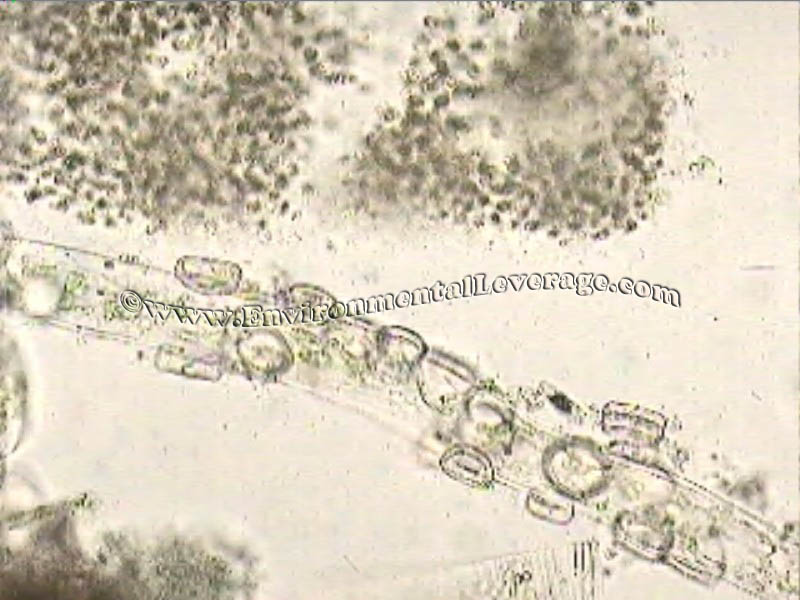
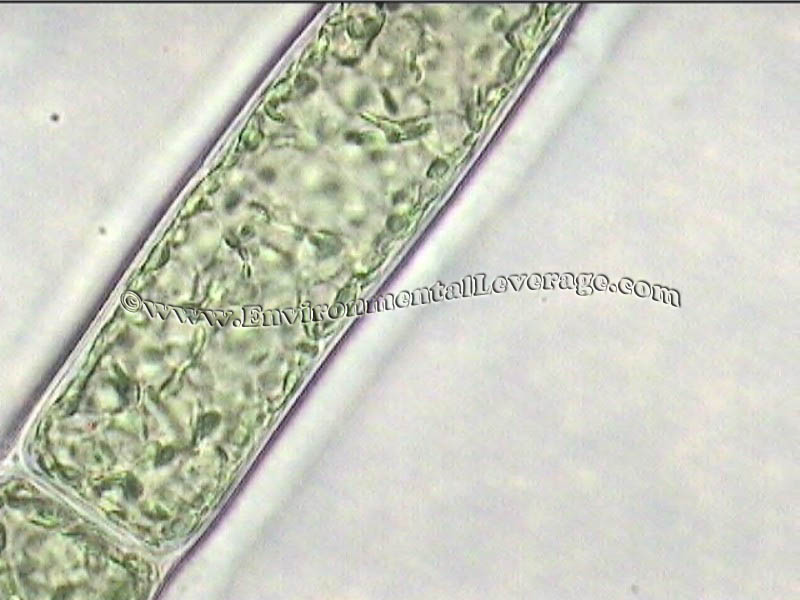
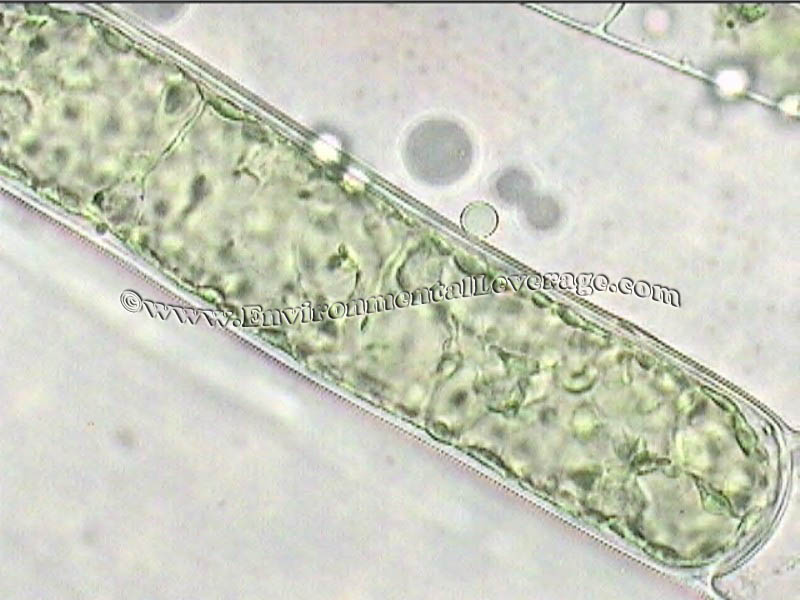
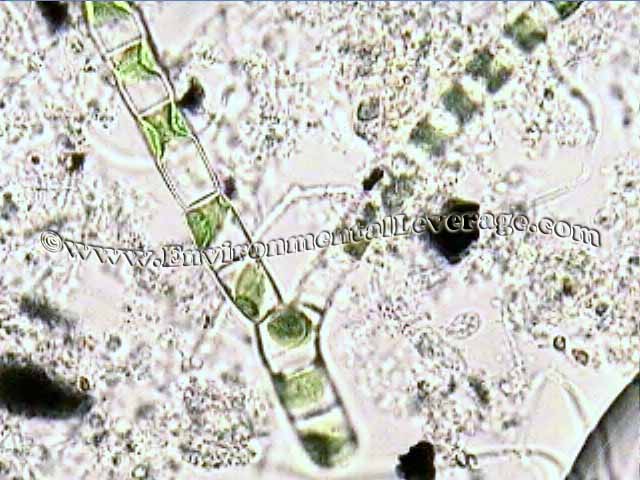
.jpg)
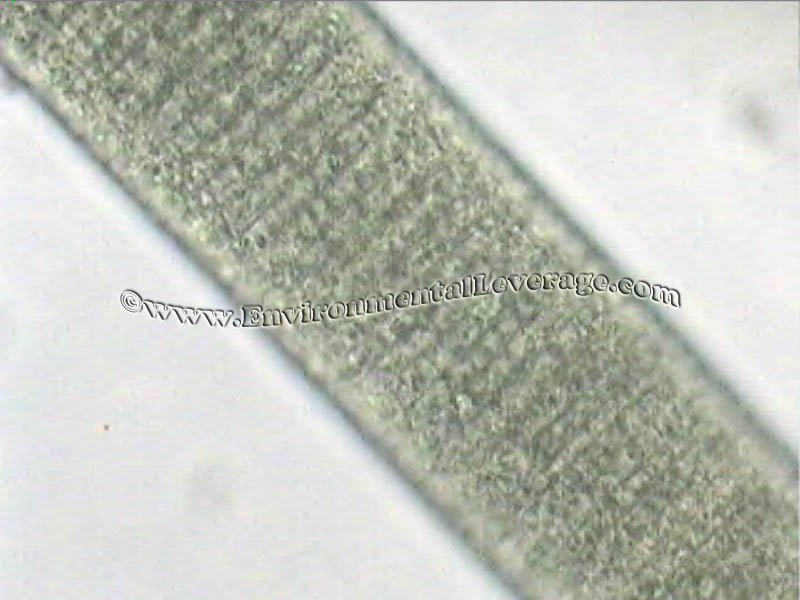
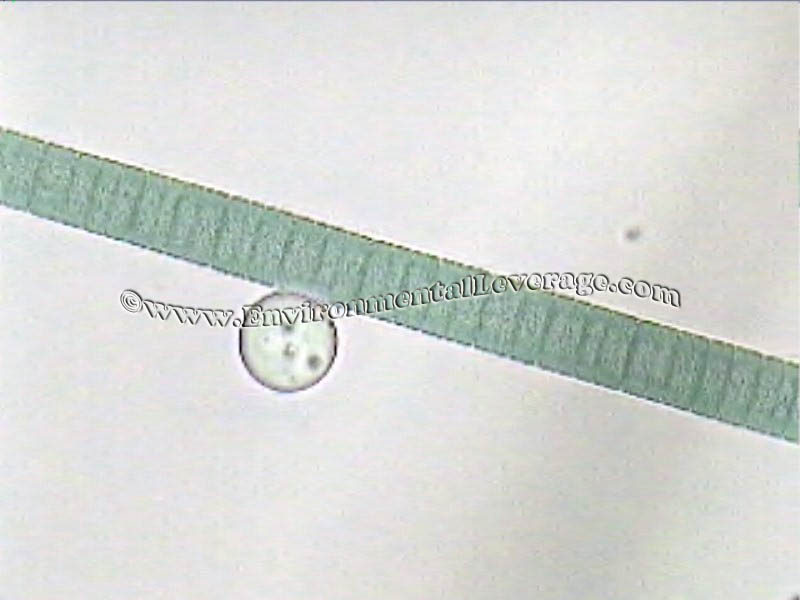
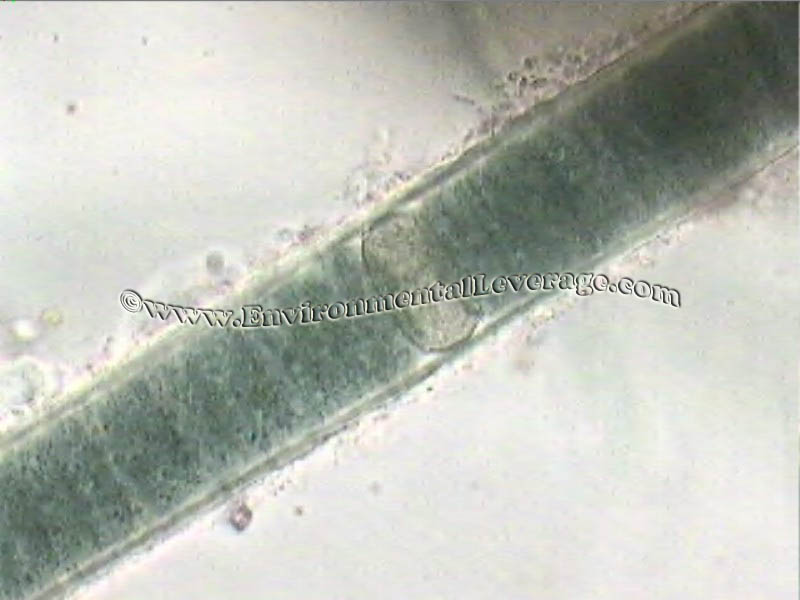
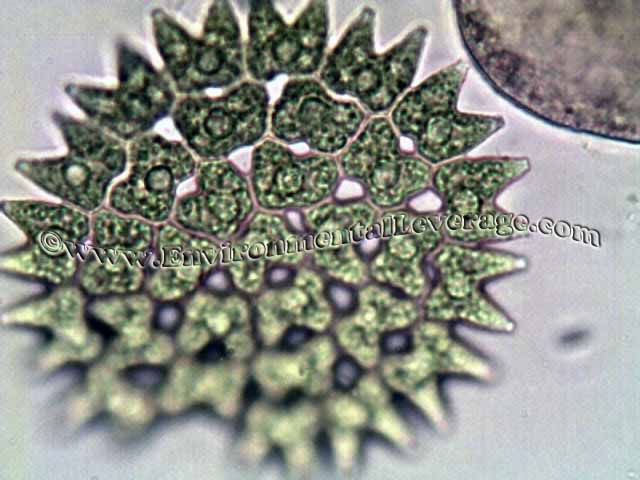
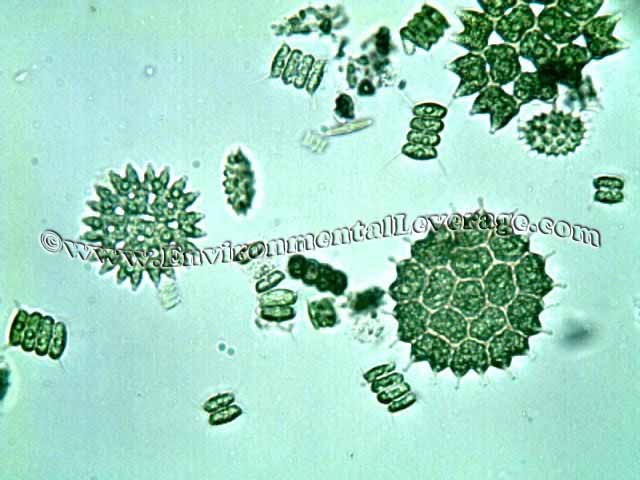
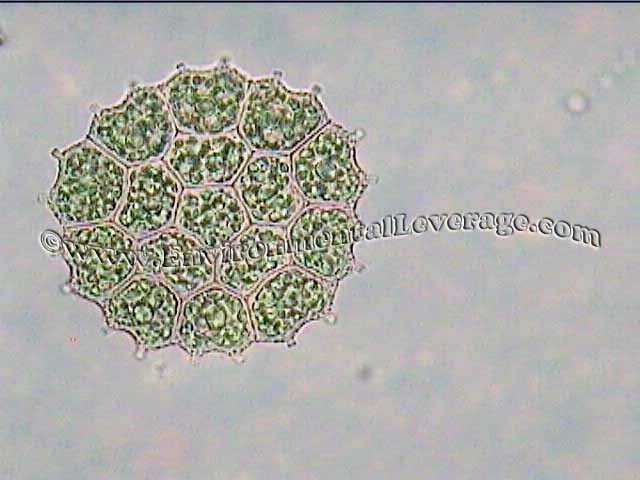
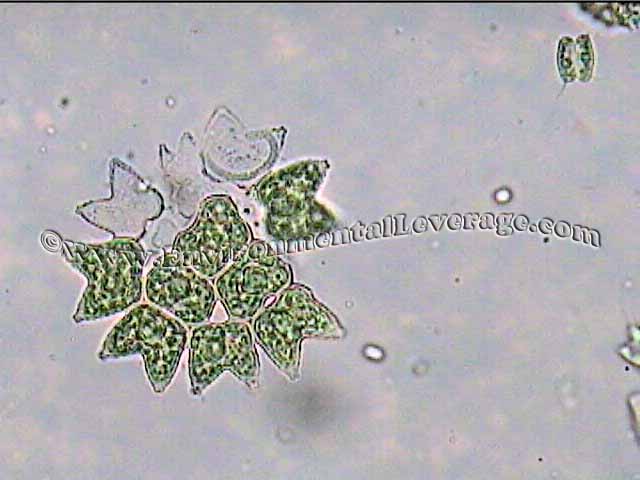
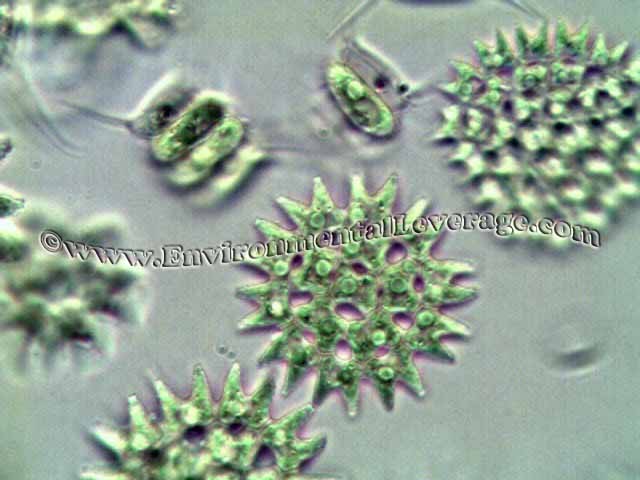
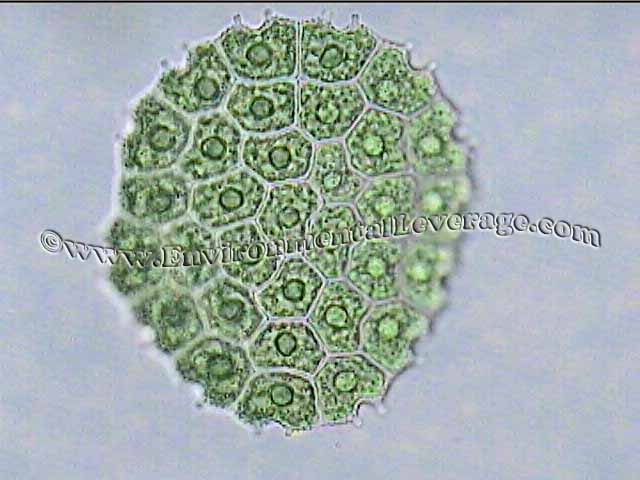
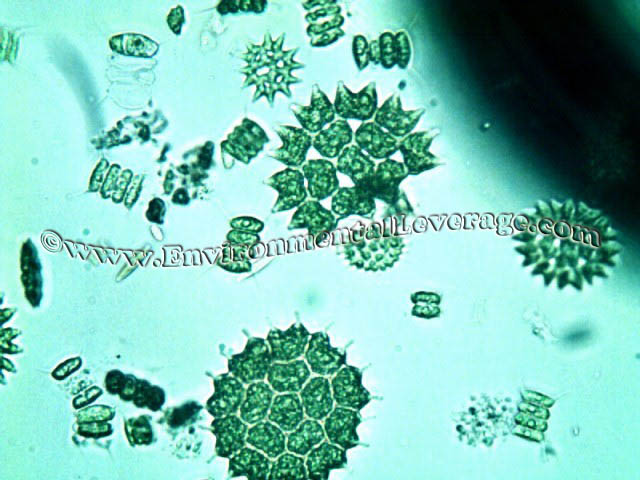
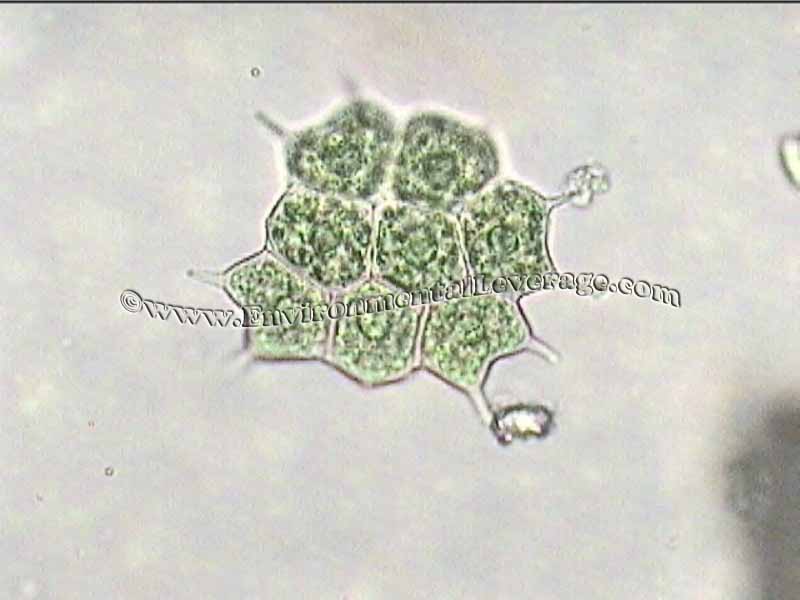

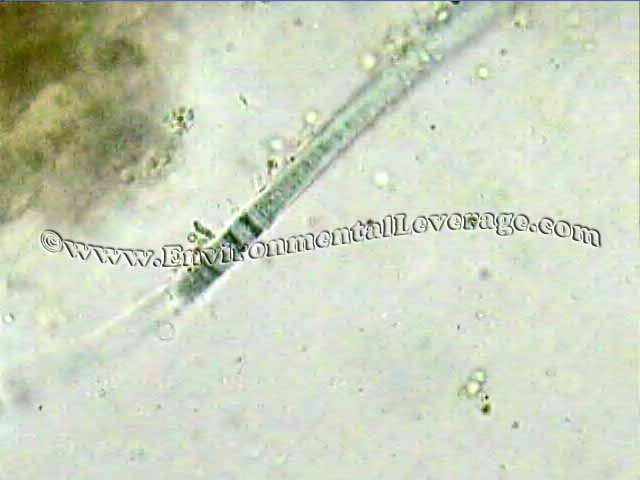
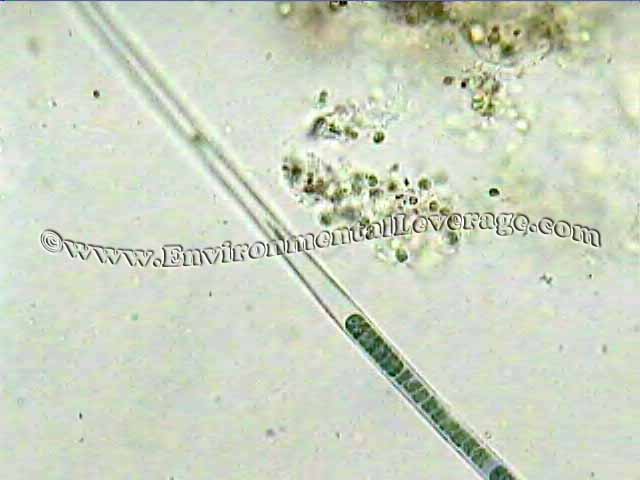
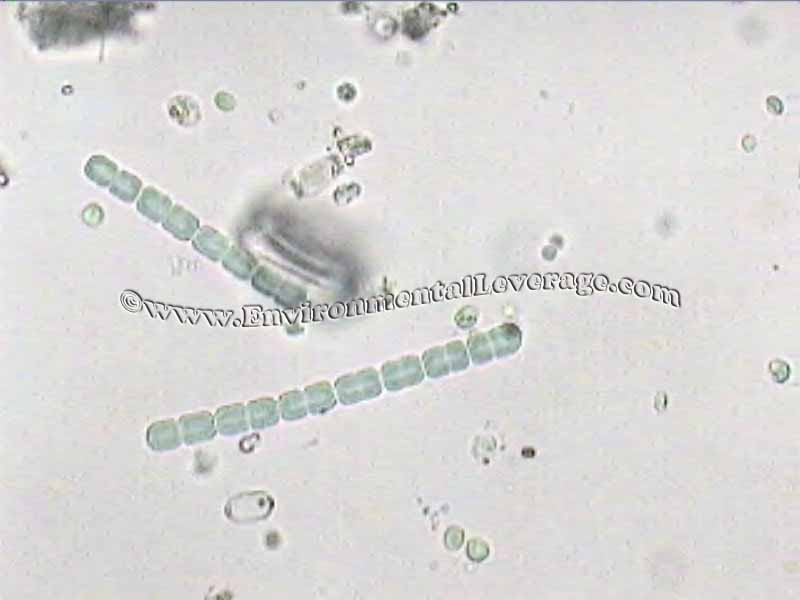
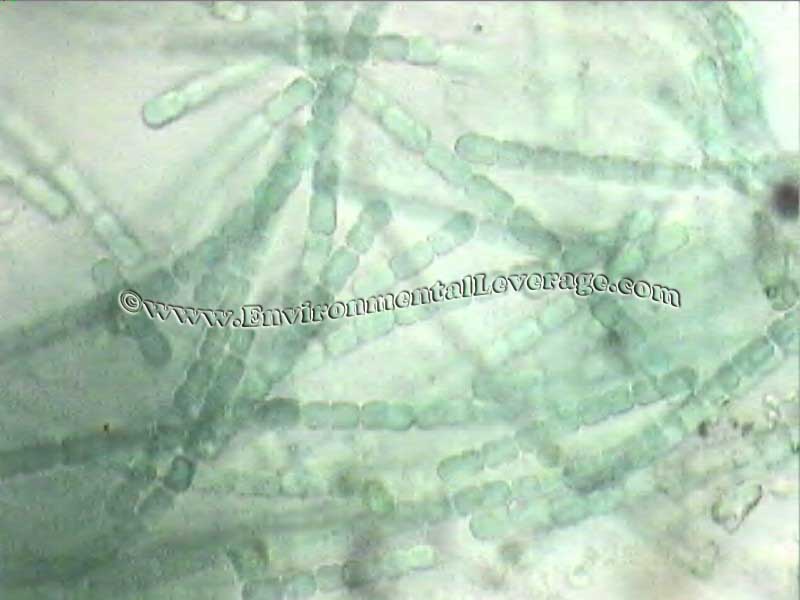
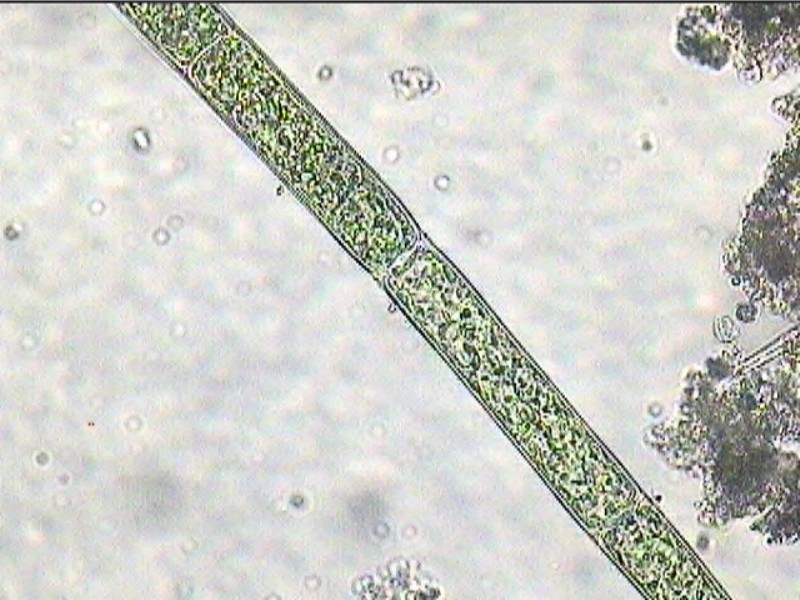
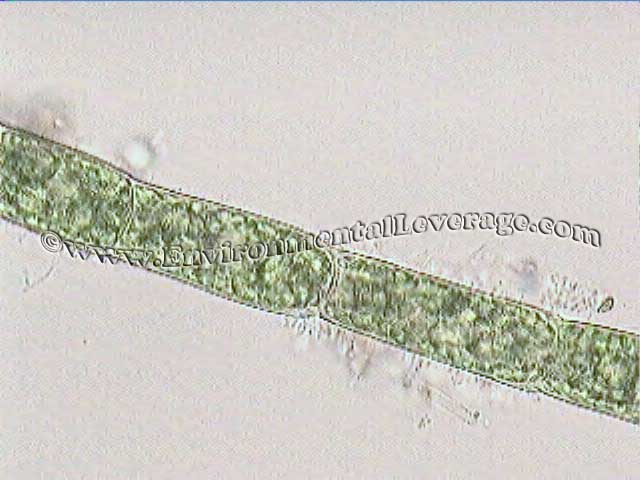
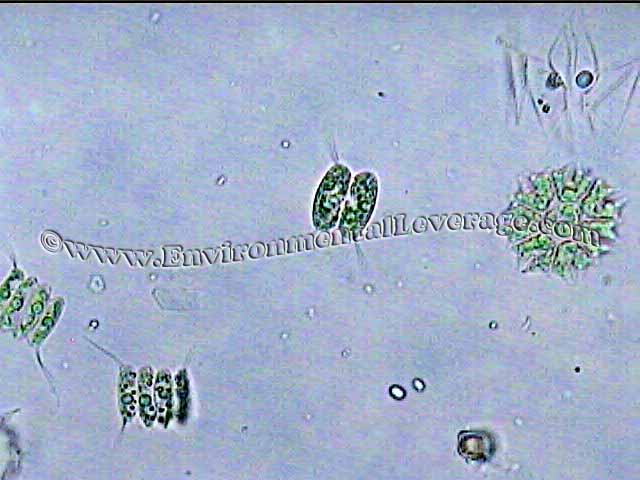
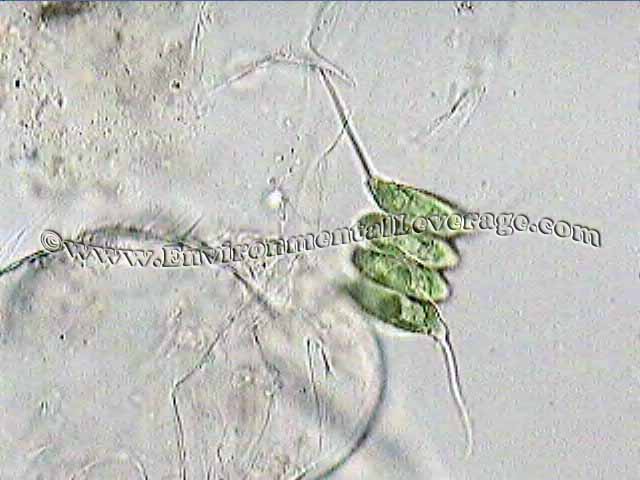
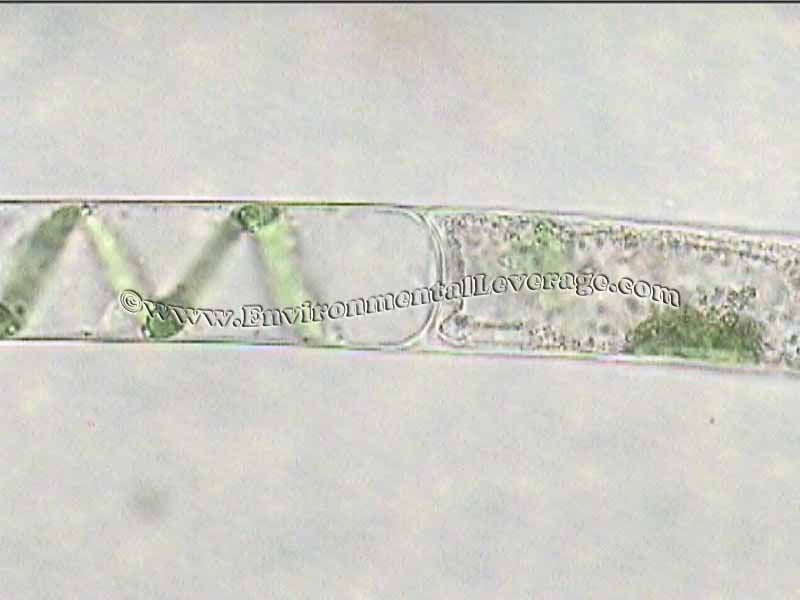
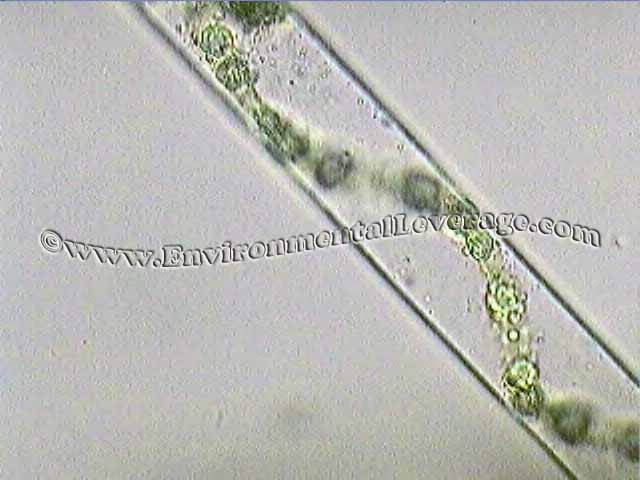
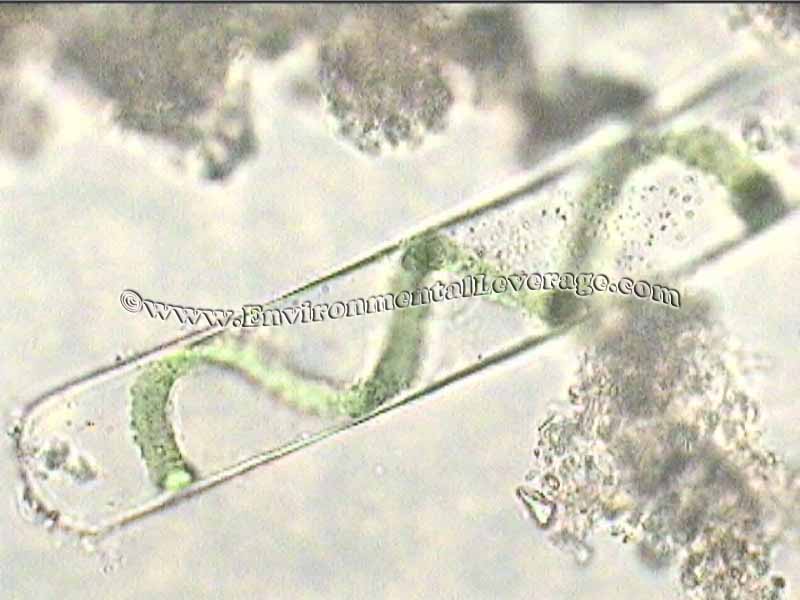
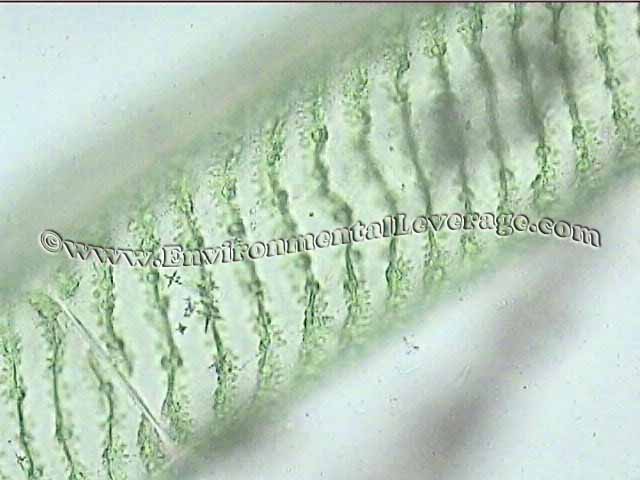

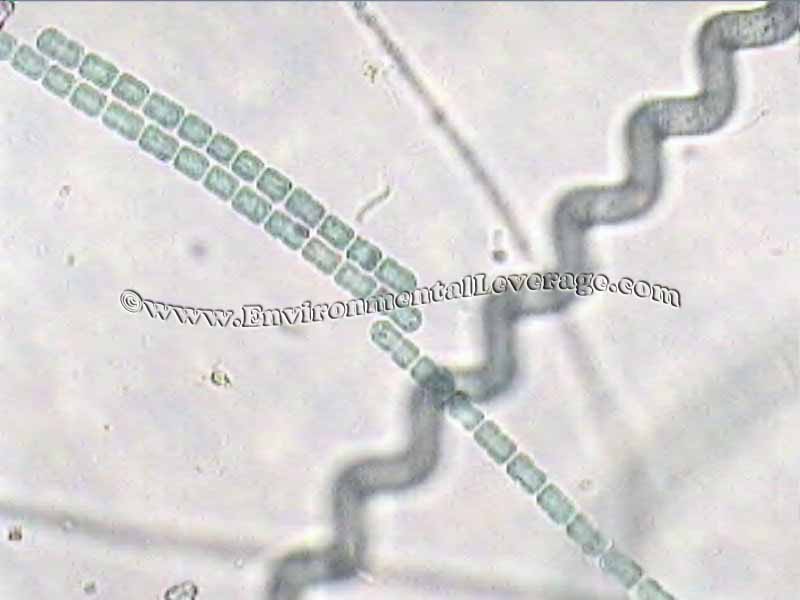
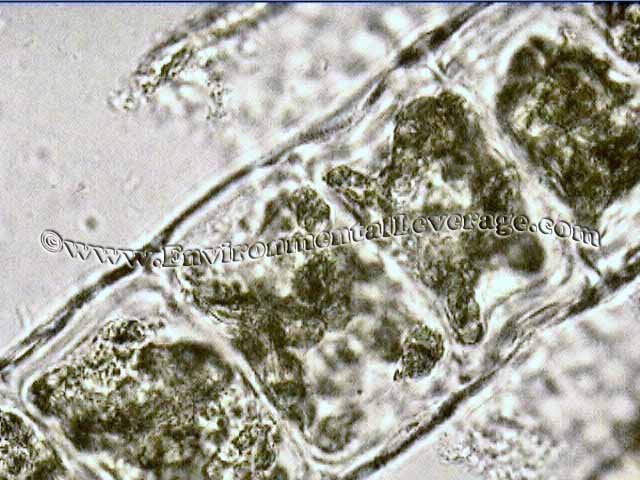
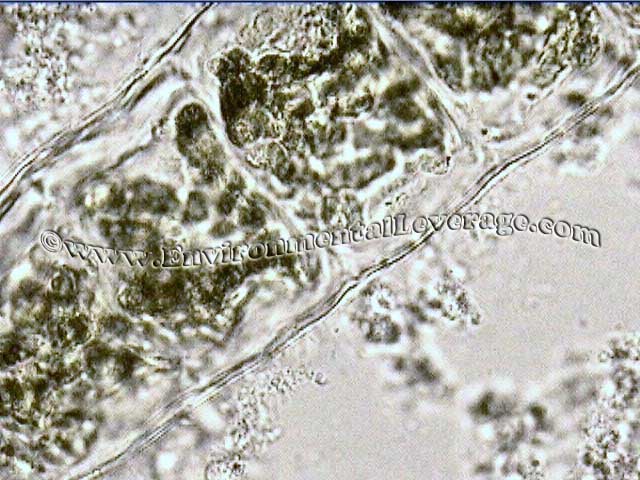
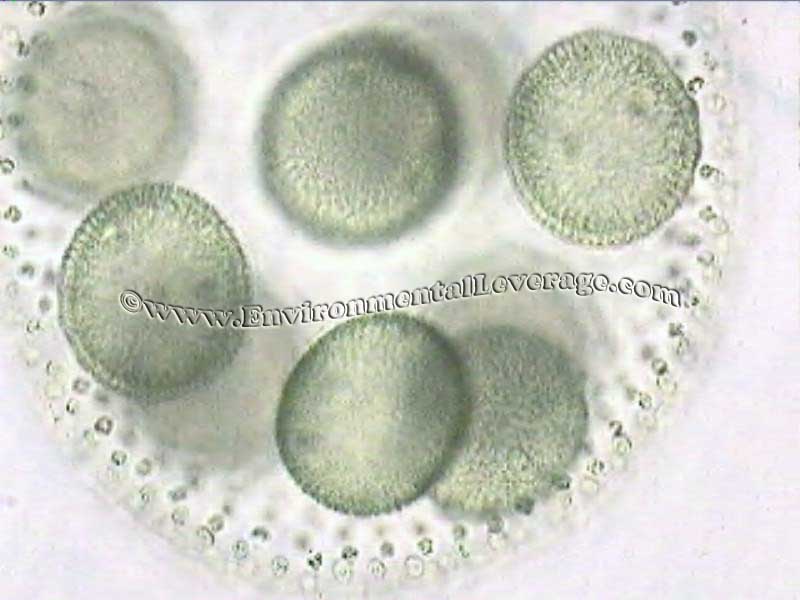
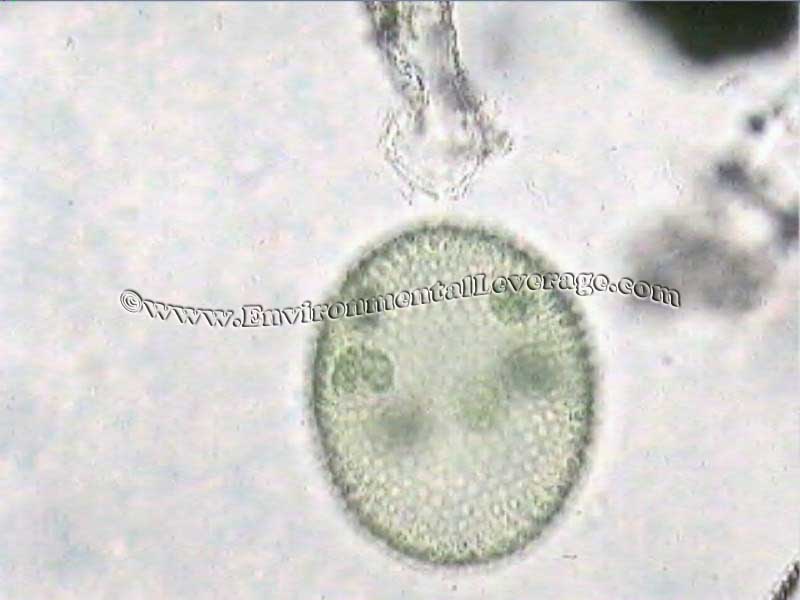

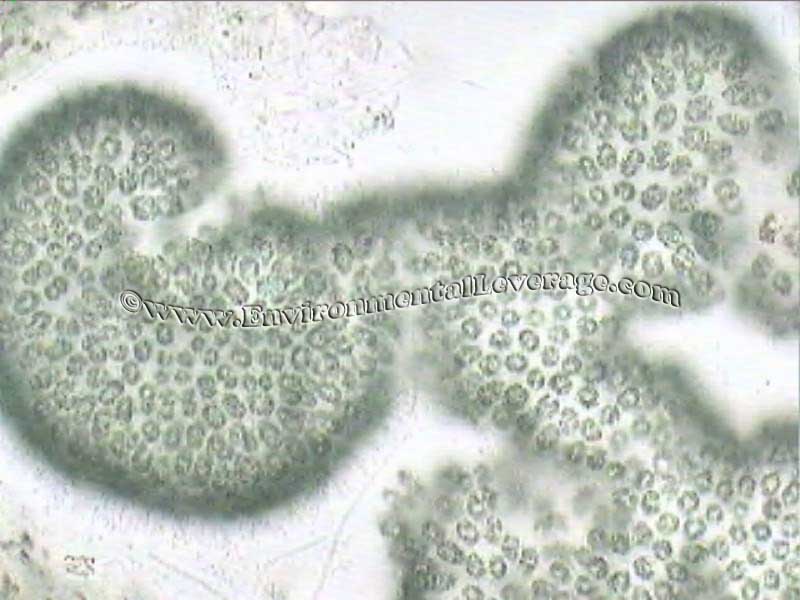
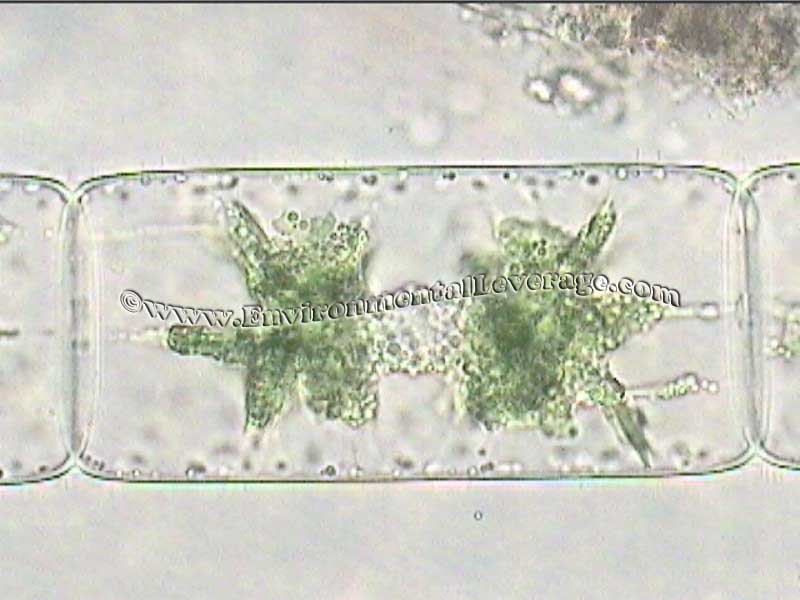
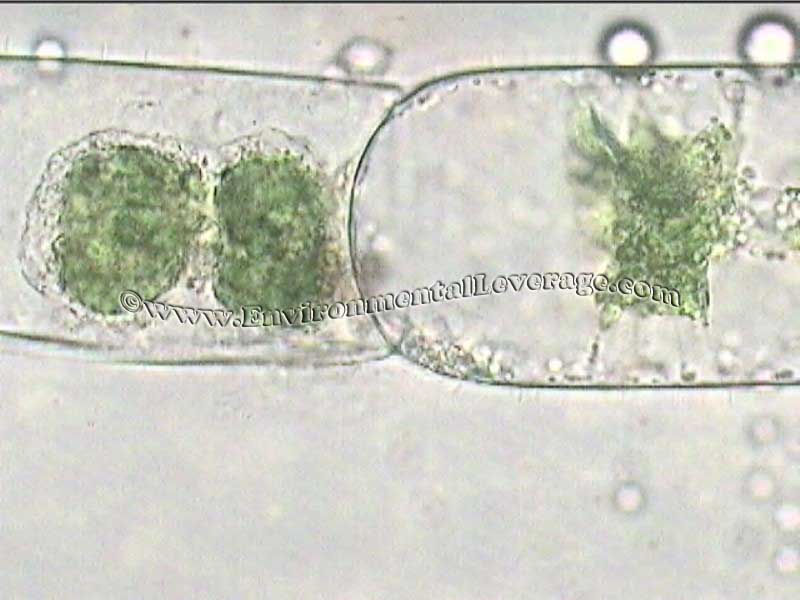
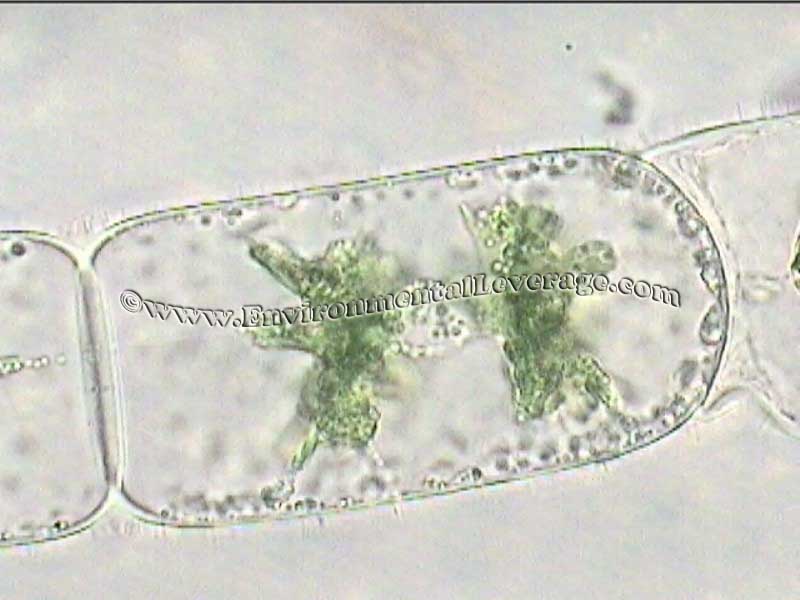

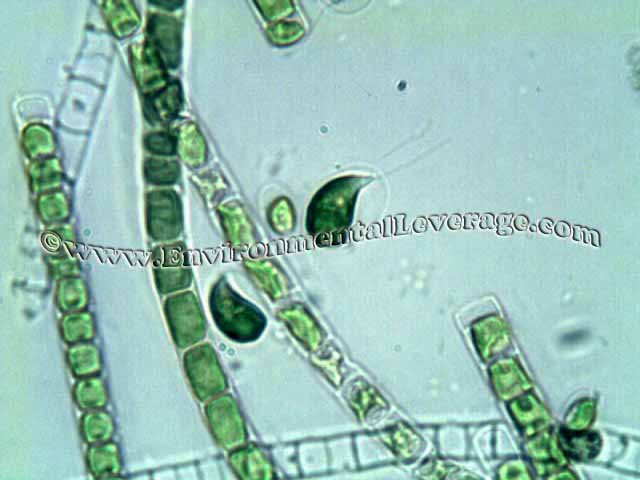
.jpg)
